real. honest.
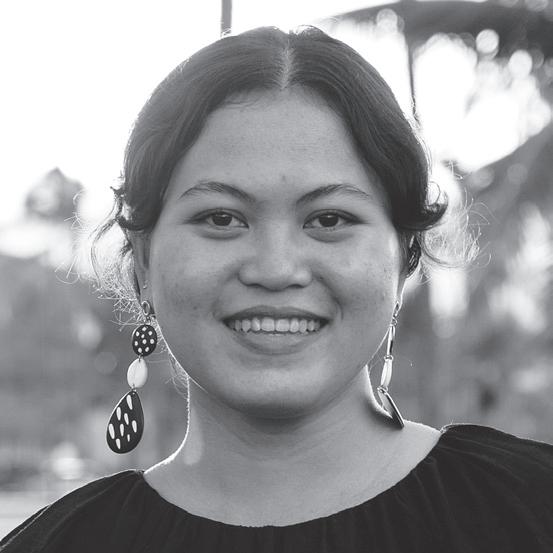

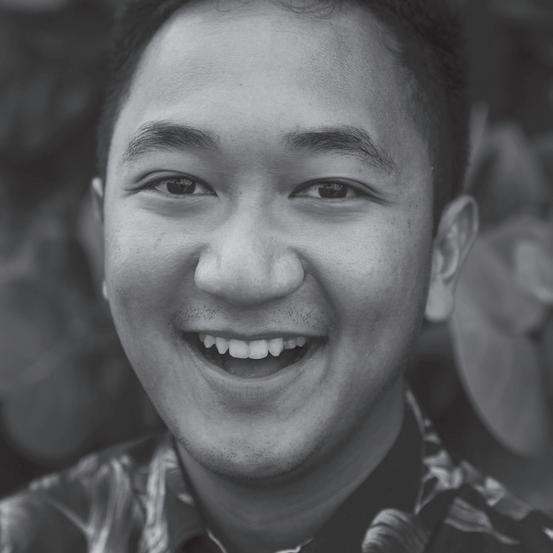
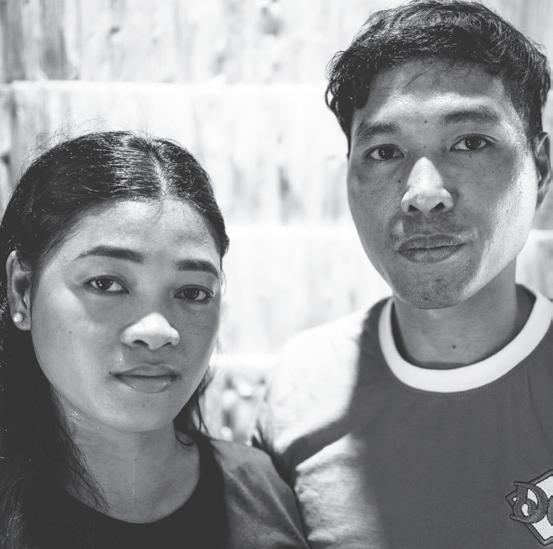
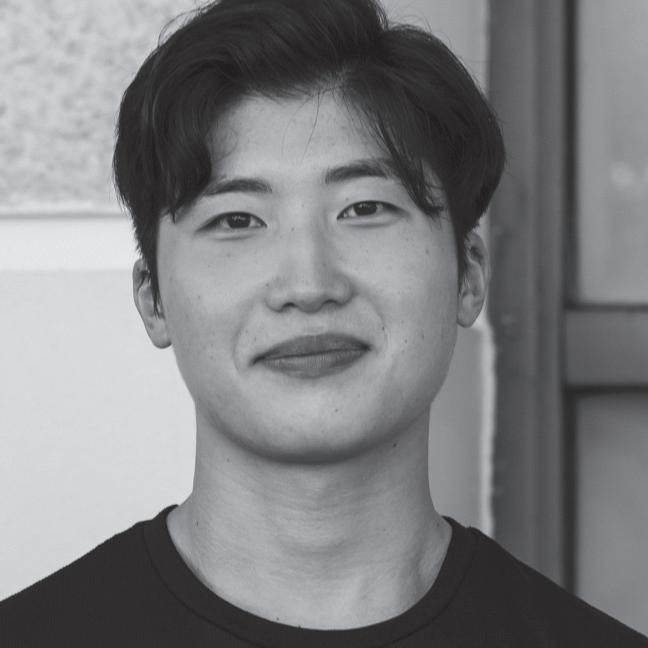

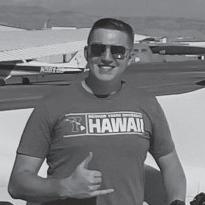

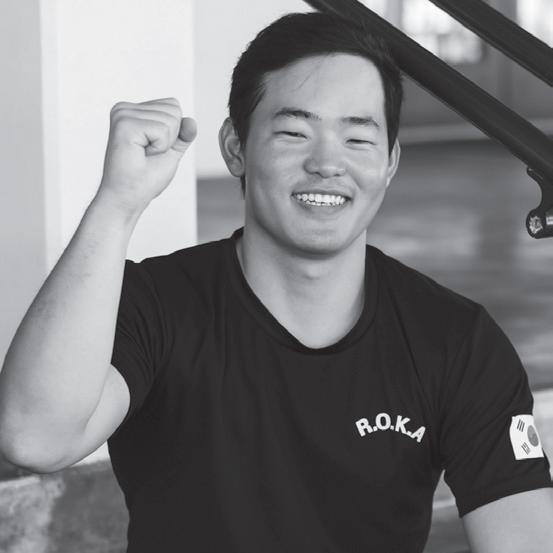


authentic. human. FALL 2022 ISSUE 2
Advisor_Leeann Lambert Editor-in-Chief_Rahel Meyer Managing Edior_Mckenzie Alvarez Art Director_Sugarmaa Bataa Copy Editor_Hadley Wurtz Copy Editor_Kylee Denison Copy Editor_Collin Farley Copy Editor_Manhattan Ethington Journalist_Abigail Harper Journalist_Chenoa Francis Journalist_Jieun Shin Journalist_Levi Fuaga Journalist_Lexi Langley Journalist_Linda Laulu Journalist_Mahana Tepa Journalist_Nichole Whiteley Journalist_Ranitea Teioharii Journalist_Seika Fujitani Journalist_Viviana Chuah Journalist_Xyron Levi Corpuz
Designer_Marlee Palmer Graphic Designer_Yichi Lu Graphic Designer_Akira Nagahama
Chimee
Staker
Jay Villegas Photographer_Pristine Shek
Nyamdeleg Photographer_Yui Leung Photographer_Zane Saenz
FALL 2022 • VOLUME 133 • ISSUE 2 2 KE ALAKA‘I 2022
Graphic
Photographer_Enkthuvshin
Photographer_Kristen
Photographer_Marwin
Photographer_Uurtsaikh
TEAM MEMBERS
NEWS CENTER: Box 1920 BYUH Laie, HI 96762
Editorial, photo submissions & distribution inquires: kealakai@byuh.edu
To view additional articles go to kealakai.byuh.edu

CONTACT: Email: kealakai@byuh.edu Phone: (808) 675-3694 Office: BYU–Hawaii Aloha Center 134
ON THE COVERS: Collage of BYU-Hawaii students and alumni featured in this magazine. Photos by Ke Alaka‘i photographers.
ABOUT
The Ke Alaka‘i began publishing the same year the University, then called Church College of Hawaii, opened. It has continued printing for more than 60 years.
2022 Ke Alaka‘i BYU–Hawaii All Rights Reserved
The name means “the leader” in Hawaiian.What began as a monthly newsletter, evolved into a weekly newspaper, then a weekly magazine and is now a monthly news magazine with a website and a social media presence.Today, a staff of more than 25 students work to provide information for BYU–Hawaii’s campus ohana and Laie’s community. ©
THE LEADER FALL 2022 ISSUE 2 • 3
Link to all pictures here:
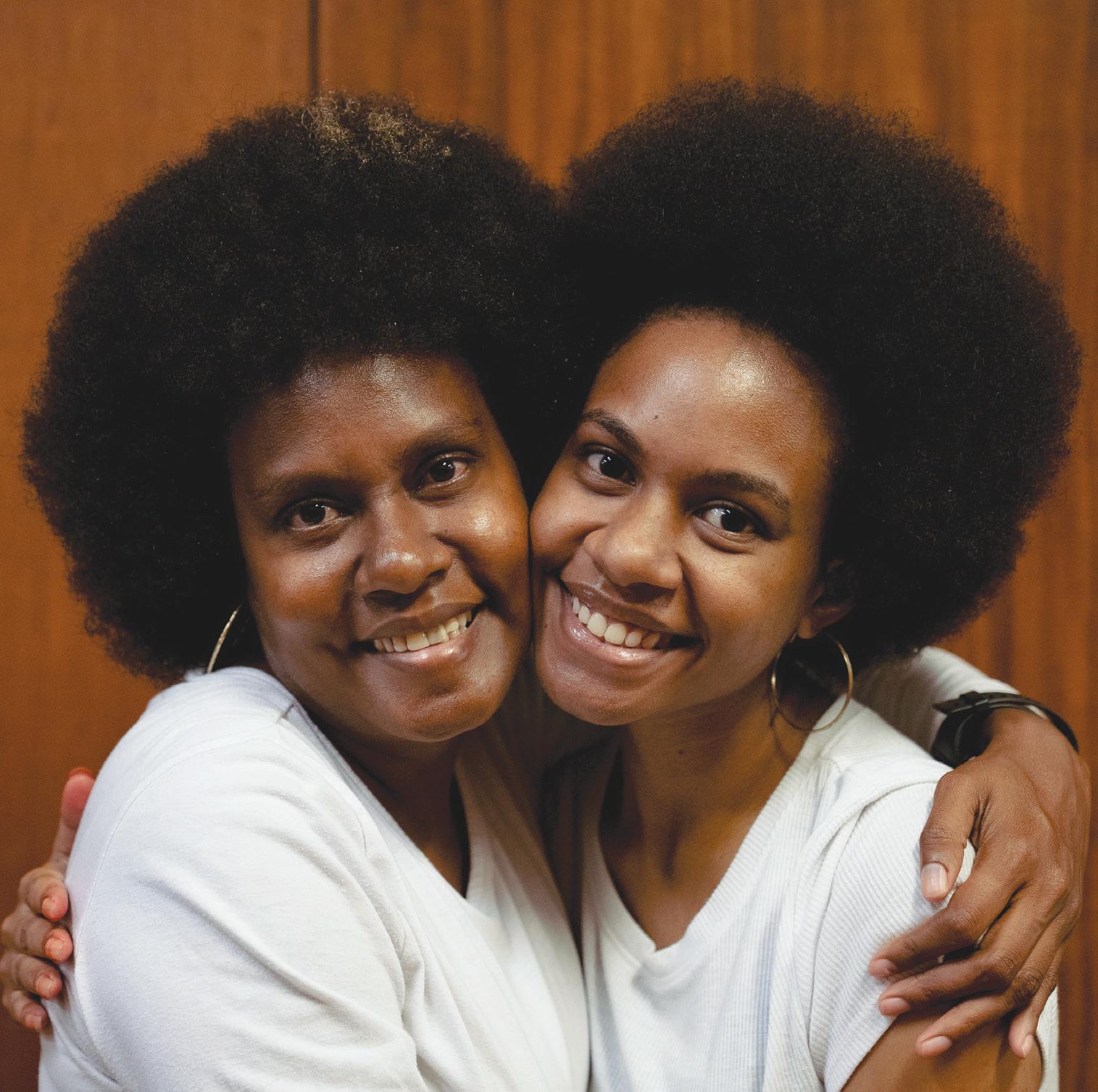
CONT 06 Theme introduction 08 Capturing a full life 14 Your natural beauty is you 18 Rising from recovery 22 Reexamining the purpose of pain 26 The journey to becoming right with God 30 Korean military service 34 Be true to yourself 38 Piloting your dreams 42 Growing in pain 46 The other half of the restoration 50 Conducting life through music 14 YOUR NATURAL BEAUTY IS YOU 4 KE ALAKA‘I 2022
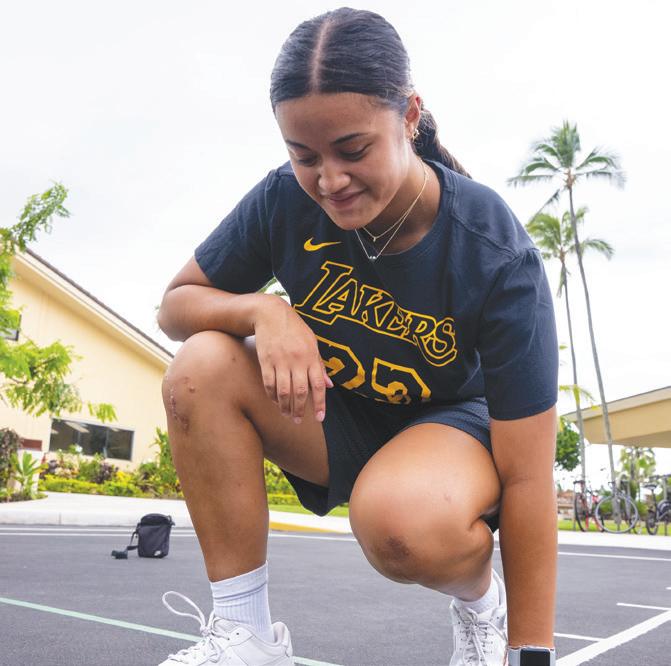

ENTS 08 CAPTURING A FULL LIFE 18 RISING FROM RECOVERY 54 Unspoken words of a mother 58 Family over fortune and fame 62 Empowered through trials 64 Full circle FALL 2022 ISSUE 2 • 5

Do you know anyone who is perfect and has no problems? If you don’t that probably means that you and the people around you are living. Life is not all rainbows and unicons, happiness and joy.We all go through pain, loss, trials and struggles. That is the truth.
UNFILTERED BE REAL BE HUMAN
Just like art, beauty can be seen in everything. Even in our darkest days and deepest wounds, if we think a little further, we can see that beauty. God gave us experiences to shape us and let us to grow stronger.We have guidelines to make life little less heavy.
Our issue emphasizes raw stories that we think are important and inspiring.We can’t just judge people through first impressions, Instagram and social media. Most people share their happiness, but not what they are going through.You are not alone if you are struggling. Please enjoy our issue and be inspired and comforted by the stories of these amazing people.

Aloha.
Sugarmaa Bataa
Sugarmaa Bataa (Kendra), Art Director
CAPTURING A FULL LIFE
BY ABIGAIL HARPER
Born in the middle of the Liberian Civil War, his childhood was spent on the run, displaced and separated from family, he said. As a young adult, he shared he held his baby girl as she died. A sophomore studying social work at BYU–Hawaii, Alphanso Appleton, said he plans to return to Liberia to make a tangible change. Through a nonprofit organization, he explained he used surfing to make a difference and photography to transform how others perceived his world.
Snapshots of life
Appleton, also known as Fonzie, said when he was growing up the media only portrayed the worst of Liberia, like child soldiers, trauma and poverty. “Those things do exist and to just turn away and say it doesn’t, that’s a problem,” said Appleton. “However, I think that just portraying people with a single image over and over again robs them of their identity.”
Through the nonprofit organization Strongheart, Appleton said he learned and became passionate about photography.
“When I picked up the camera,” he said, “my goal was to help give people a fresh perspective on Liberia.” He said he wanted to show the world Liberia is beautiful, the people there are happy and want a better life but lack opportunities.
Photography wasn’t the only skill Strongheart taught Appleton. With the nonprofit’s help, he said he and a few others started the Robertsport Club, later known as the Liberian Surfing Association. The association’s goals were to give young people a safe space to learn surfing, promote positivity, and build deep connections, explained Appleton.

The club provided scholarships for local youth, said Appleton, and a surf house where they could do homework, make art or check out surfboards to hit the waves.
Picturing a civil war childhood
Growing up in West Africa was a combination of happy and sad experiences, explained Appleton. His hometown, Robertsport, was a main stronghold for the rebels in the Liberian Civil War, he shared. “Long story short, it got
really unsafe to live there at one point, so my family fled one night in a little fishing canoe,” said Appleton.
Appleton said he was about 4 or 5 on the night they fled, so he only remembers bits and pieces of the event. “I remember a lot of chaos,” he recalled, “and a lot of running and being constantly scared.”
Knowing about God helped Appleton through life’s challenges, he said. He was raised as a Jehovah’s Witness, attending church up to three times a week. Appleton believes faith in God can also translate into having faith in oneself. Being separated from his family and later leaving them was hard, he said, but faith in God and in himself got him through it.
After settling down for a time, Appleton’s family had to flee again, he said. When he was around 10 or 11, Appleton shared his displaced family slept in abandoned hotels. Food was hard to come by during that time, so Appleton and his friends would go to the port to fish or look for things to eat. On one of these excursions, Appleton said he got separated from his family.
Sophomore surfer from Liberia says if life sends crushing waves, use them to push yourself forward and enjoy the view
 Appleton, who co-founded the Liberian Surfing Association, walks along the beach. Graphics by Akira Nagahama. Pictures provided by Appleton.
Appleton, who co-founded the Liberian Surfing Association, walks along the beach. Graphics by Akira Nagahama. Pictures provided by Appleton.



10 KE ALAKA‘I 2022
Left and right: Pictures of people that have benefited from the Liberian Surfer Association. Pictures taken by Appleton.
While apart from his family, Appleton said all he did was fish, spend time with friends and hope he didn’t die. But he said he also felt a lot of comfort. “I didn’t feel alone because I was with a lot of people who were the same age and who didn’t have a family, so we were a support for each other.
“I think my growing up in Liberia had a lot of extreme circumstances, but overall, I got to be with people who I love and who loved me too,” Appleton said with a smile.

After the war ended, Appleton said he was reunited with his family through nonprofit organizations that were working in the displacement camps.
Once they were together again, Appleton’s family moved back to Robertsport. Appleton said during their time apart, he wasn’t sure if he’d ever see his family again or if the war would end. It was a huge relief and comfort, he said, to be back with his family in the place he was born.
Watching his world fall apart
Appleton’s forearm bears the tattooed letters L I S A. “It’s the name of my daughter, named after my mother,” he said.
As a young man, Appleton said he became a father, adding becoming a parent can make life unpredictable. “It’s a lot of responsibility, but at the same time, it is such a great joy to watch them grow each and every day,” he explained. While at work one day, Appleton said he received a call that Lisa was in the emergency room.
At 18 months old, Lisa was hit by a car, he said. Doctors were able to stabilize her, but the day after the accident, Appleton said he could tell how bad her situation was. On the third day, Appleton got into an ambulance with his daughter and drove four hours to the hospital in the nearest city.
Portrait of Appleton who is preparing to become a doctor of psychology.



Lisa passed at 5 a.m. that morning, said Appleton.
“I’ve seen people die and people I care about, but I’ve never felt death like that,” said Appleton.
Seven years after the accident, Appleton said he is still working on getting better. He said a part of him was ripped out and broke that day. “I think it is one of the worst things anyone can ever face,” said Appleton, “to watch your child die right in front of you.” He said he prays to God that Lisa is in a better place.
Leaving Liberia
While the work he did with the Liberian Surfing Association was rewarding and satisfying, said Appleton, but he wanted to do more.
“There is nothing wrong with living in a little fishing village for the rest of your life,” he said about Robertsport, “but that’s not what I wanted.” He said he wanted to leave so he could give something back to the village rather than just being part of the system.
Strongheart helped Appleton get a scholarship to study photography in New York City. He finished the program in a year, then got sent to China to run a competition.
“After that, I was like, ‘I don’t know anything,’” said Appleton, “so I applied for an internship advocating for mental health in Texas.”

Appleton said he focused on advocating for mental health during his internship in Texas. “When people experience trauma over and over again without getting any psychological support,” he explained, “that trauma unconsciously gets passed onto the children. That happened to a lot of Liberians.”
During the year-long internship, Appleton said he got to work with mental health professionals and use his personal story to speak up for those who don’t have a voice.
Creating his future
“I’m a people person,” said Appleton, “but I had no idea I could pursue a career that would integrate that into my everyday life. I think what I’m really passionate about and what I’d love to do is to work with people who have issues, one-on-one.”
On his first day of college in San Diego, California, Appleton said he saw two guys dressed up on campus and wanted to know who they were. “Something inside me just said, ‘Go talk to them,’” said Appleton. He said he told the missionaries he wanted to learn more about them.
After converting to the Church of Jesus Christ of Latter-day Saints and getting an associate’s degree at Grossmont–Cuyamaca Community College in San Diego, Appleton said he prayed to find an affordable school with a social work program. “I found BYUH online. I had no idea it was part of the Church,” he said. Appleton applied and started school at BYUH in Winter 2021.
Appleton said he wants to be a doctor of psychology. He does not want to have any roadblocks later in his life, and he said he hopes being a doctor will allow him to help people as much as possible.
He plans to go home when the time is right, he said. “I want to live in America as long as I can to get as much knowledge so once I go back, I will have connections. I can help in a very meaningful way.” •
FALL 2022 ISSUE 2 • 13
YOUR NATURAL BEAUTY IS YOU
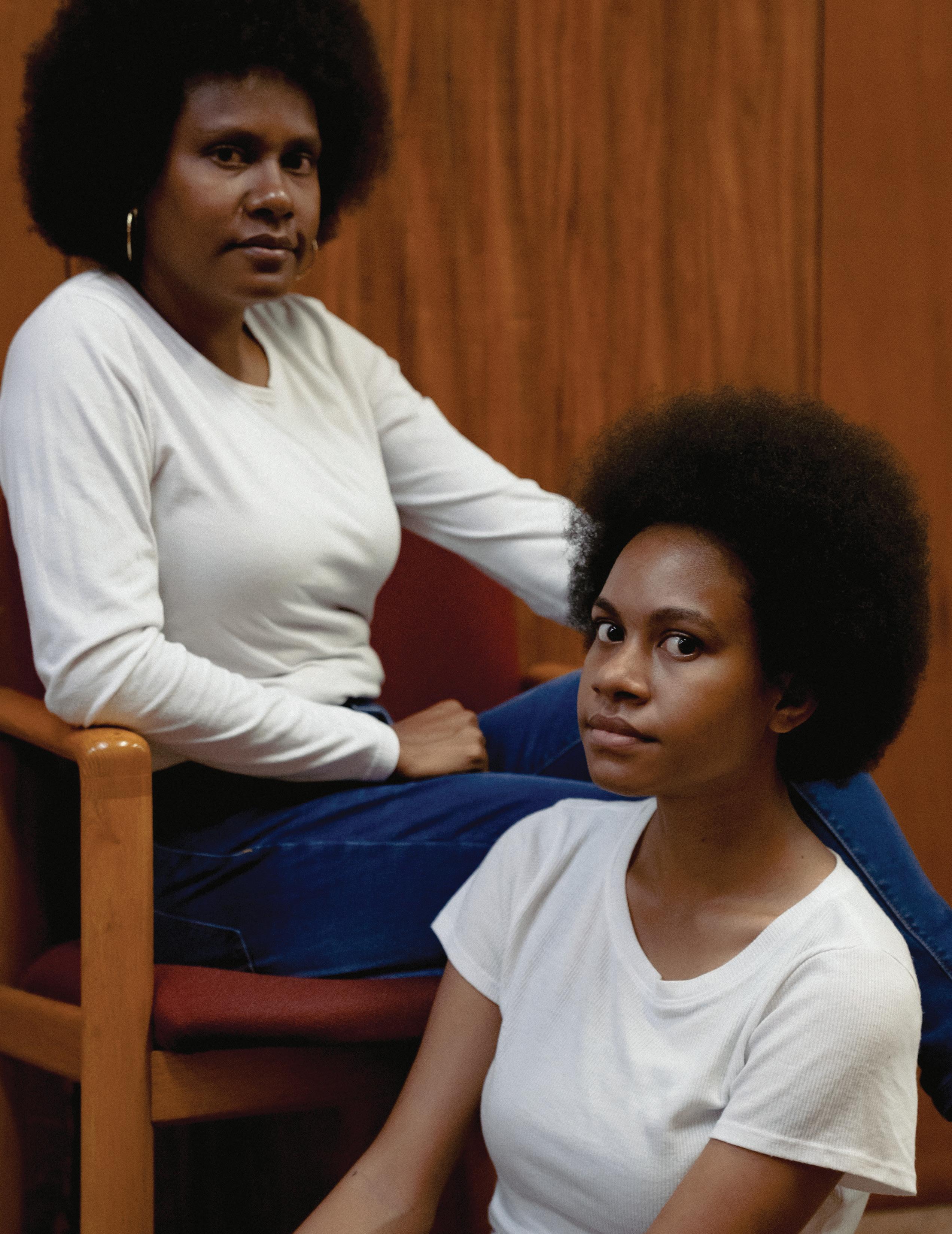 Sisters Celia and Elaine, who pose for the camera, appreciate their natural hair.
Photos by Kristen Staker. Graphics by Yichi Lu.
Sisters Celia and Elaine, who pose for the camera, appreciate their natural hair.
Photos by Kristen Staker. Graphics by Yichi Lu.
Sisters from Papua New Guinea stress the importance of valuing natural beauty
BY MCKENZIE ALVAREZ
In Papua New Guinea, Celia Omae said she just wanted her hair to blend in. She would put in extensions and would relax (permanently straighten hair) until she said to herself, “I love my natural hair because it’s beautiful the way it is. Why would I want to try to be something I’m not?”
Celia Omae, a sophomore, studying biology, and her sister Elaine Omae, a freshman also studying biology, said they both have aspirations to become doctors.
Elaine Omae said she has always considered her hair beautiful because it is thick. She said she likes to put it in different styles, combing it out to an afro or tying it up, but she loves to wear her hair in braids.

Celia Omae explained the culture in Papa New Guinea favors a natural beauty standard. Elaine Omae said, “Natural beauty is the best. ... even if you put [in] extras… God created us the way [we] are, and if we do not accept that, we’re not accepting His love and [this is] His way of showing that he cares for us. He wants us to just accept that natural beauty.”


"God created us the way [we] are, and if we do not accept that, we’re not accepting His love and [this is] his way of showing that he does care for us. He wants us to just accept that natural beauty.”
Celia Omae said she continues to have a good relationship with her hair but she adds she is sometimes too lazy and doesn’t want to do anything with it, due to the extensive maintenance her hair requires.
Elaine Omae said, “When I was little my mom [used coconut on her hair]. Most times when we want to treat our hair, we don’t use chemicals.”
“We actually just get the coconut, scrape it [inside] and then we squeeze the milk out and use the dry [insides].”
She continued, “We use that to wash our hair and then we pour the coconut milk [on our hair]. ...it keep the hair moisturized ... and oily.”

In Papua New Guinea hair texture and color differs from province to province, said Elaine Omae. She explained the four provinces are the Highlands, Momase, the Coastal region and the New Guinea Islands.
She explained in the Coastal region the hair is curly while in the New Guinea Islands the hair is typically ginger. •
The Papua New Guinean Sisters Elaine and Celia Omae use a comb to style their hair.
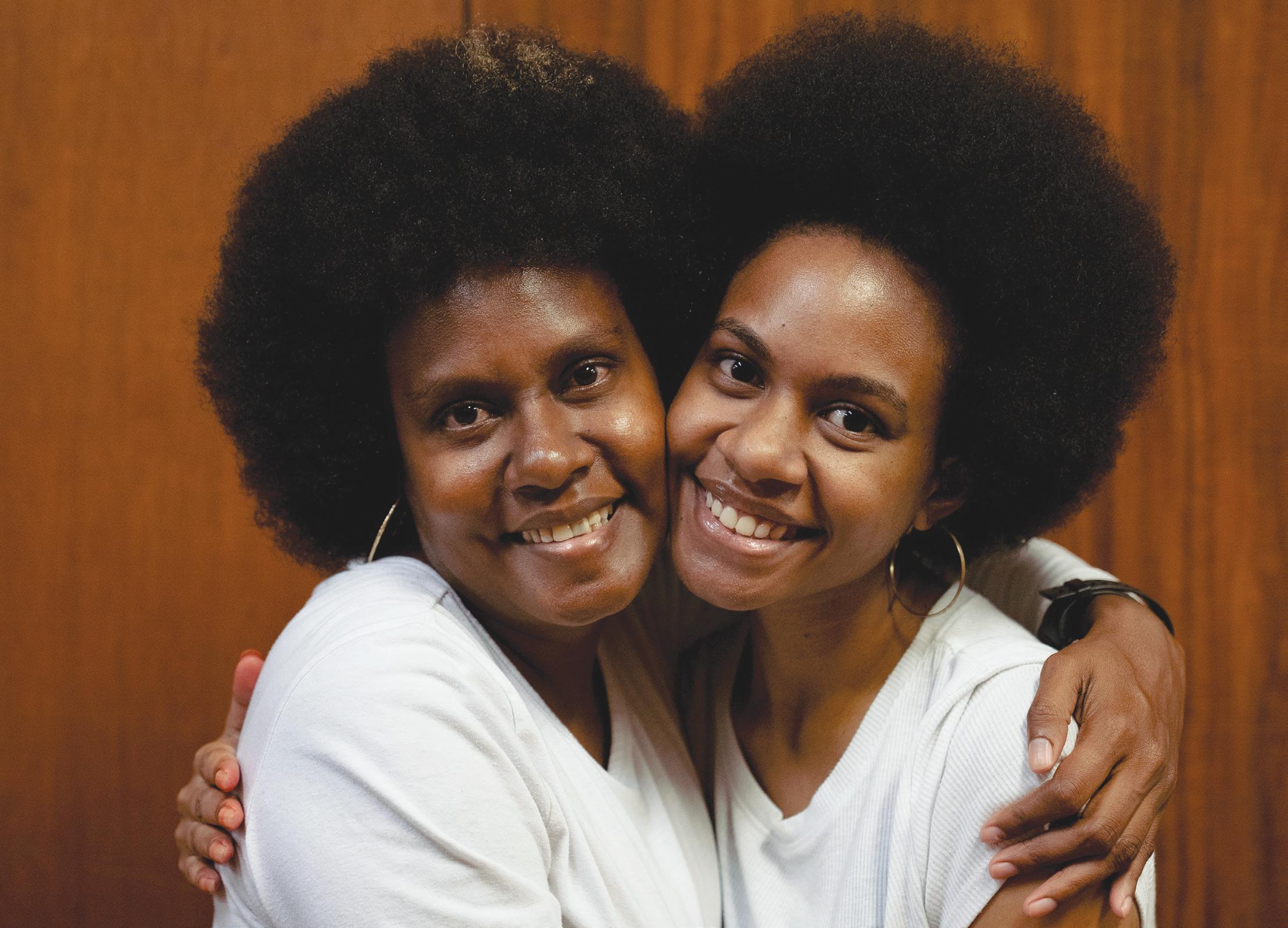
FALL 2022 ISSUE 2 • 17
RISING FROM RECOVERY


Business major says her string of knee injuries inspired her gratitude and trust in God
BY LEVI FUAGA
Starting from 8th grade, Eden Leauanae, a freshman business major from Provo, Utah, said she tore her ACL four times while playing basketball and volleyball. As a result, she received surgery and physical therapy three times over the course of her high school career, she added.
In 2017, Leauanae said she injured her right knee ACL, MCL, and meniscus while playing church basketball. As a result, she had surgery and recovered during her eighth-grade year.
During her freshman year, Leauanae said she re-injured her knee while preparing for a state basketball championship game, resulting in a partially-torn ACL. This time, she received partial surgery and recovered for three months, she added.
Leauanae said she couldn’t get the full surgery done and her doctors could only clean her meniscus. Had she received the complete surgery, it would have taken her nine months to recover, she added. She said she did not want to sit out for that long and wanted to keep playing.
During her sophomore year, Leauanae said she continued to play on a partial tear until she tore her left ACL while playing summer ball. Consequently, she said she had to sit out during her junior year.
Leauanae shared she retore her right ACL during practice before her senior night game and was not able to play. She waited to do surgery until after her high school graduation and prom, she added.
Keep the perspective in mind
Since she was 11, Leauanae said she always wanted to compete in Division I basketball. Initially, she said her goal was to attend the University of Utah to ensure she was surrounded by sports and her family.
Dealing with multiple injuries frustrated her, Leauanae said, and she questioned why God would allow this to happen despite her being active and diligent in church callings.
Throughout her injuries, Faleni Leauanae, Eden’s father, said he and his wife, Jessica, would counsel her to “keep the perspective in mind.” There is a meaning behind her challenges and being able to share them with others, he added.
After her third and fourth injuries, Faleni Leauanae said it felt as if they as parents were becoming redundant and unprogressive with their advice. He said it’s one thing to recover after a year but another to resume activity with the thought of possible reinjury.
Jessica Leauanae, Eden’s mother, said it was painful to see her daughter grow farther away from fulfilling her dream. “She continually puts her body on the line, knowing full well the chances of a second, third [and] a fourth tear getting higher each time.”
Perseverance

The hardest part of her recovery was trusting in God’s plan for her, said Eden Leauanae. She said mentally she was struggling to convince herself to push through her injuries and recovery.
Jessica Leauanae said the hardest part for Eden was the reoccurring thought that God was punishing her.
“Sometimes, as a parent, we want to move through the struggles and storms of life
quickly. But I’ve learned to sit through the pain with her - to let her have her hard days and not rush her to be cheerful and optimistic and to allow the Lord to comfort us.”
Eden Leauanae said her love for the basketball and desire to make her parents proud is what motivated her to persevere. She said she wanted to set an example for her younger brothers to push themselves and not give up.
Faleni Leauanae said Eden has the drive to get better and stronger and possesses the mental capacity to pick herself back up and move forward. Pushing forward and being resilient has been her biggest character builder, Eden Leauanae added.
Jessica Leauanae said Eden is one of the bravest, persistent, and most tenacious people in the world and has dealt with many physical challenges from a young age. Growing up under these circumstances has pushed Eden to develop an amazing work ethic, she added.
During her recovery, Eden Leauanae said the support of her parents and ward members helped her conquer feelings of frustration and anger from being unable to play. On her senior night, she said her family filled up a portion of the bleachers and supported her even though she didn’t play.
“Even if you feel like you’re alone, there are people cheering you on even if they’re in the background.”
Faleni Leauanae said having a support system helped Eden feel loved and helped her through her trials. She can reflect on her
FALL 2022 ISSUE 2 • 19
Eden Leauanae poses for the camera and shows the scars from her surgeries. Photos by Yui Leung. Graphics by Akira Nagahama.
challenges and understand how it has helped her, he added.

Faleni Leauanae said Eden doesn’t want people who know about her trials pitying her. He said when Eden shares her story with others, it can help them appreciate the hard times they’ve gone through.
Eden Leauanae said she doesn’t want people pitying her, however, her parents reminded her to not downplay her story because they knew how hard it was for her.
A different kind of “comeback”

Attending BYU–Hawaii was not her plan, Leauanae said, she has been happy to meet new friends and family members in Laie. She has become more familiarized with her Samoan culture by meeting other people of her ethnicity, she added.
Leauanae said coming to BYUH has helped her to refocus herself spiritually by
being more grateful for the blessings in her life. She said her mother encouraged her to list down five things she is grateful for each day.
Taking a break from basketball and being away from family has taught her to also trust in the Lord, Leauanae shared.

Fia Salatielu, a freshman undecided major from Lehi, Utah, said she is inspired by Eden’s bravery, courage, and drive to push herself. Her faith to reroute her college path, she added, is inspiring to her, and she hopes to be as uplifting and motivational as she is.
Salatielu said Eden’s “comeback” was building a strong testimony that has pushed her to want to serve a mission. •


 Photos illustrate Eden Leauanae moving forward from her injuries.
Photos illustrate Eden Leauanae moving forward from her injuries.
REEXAMINING THE PURPOSE OF PAIN
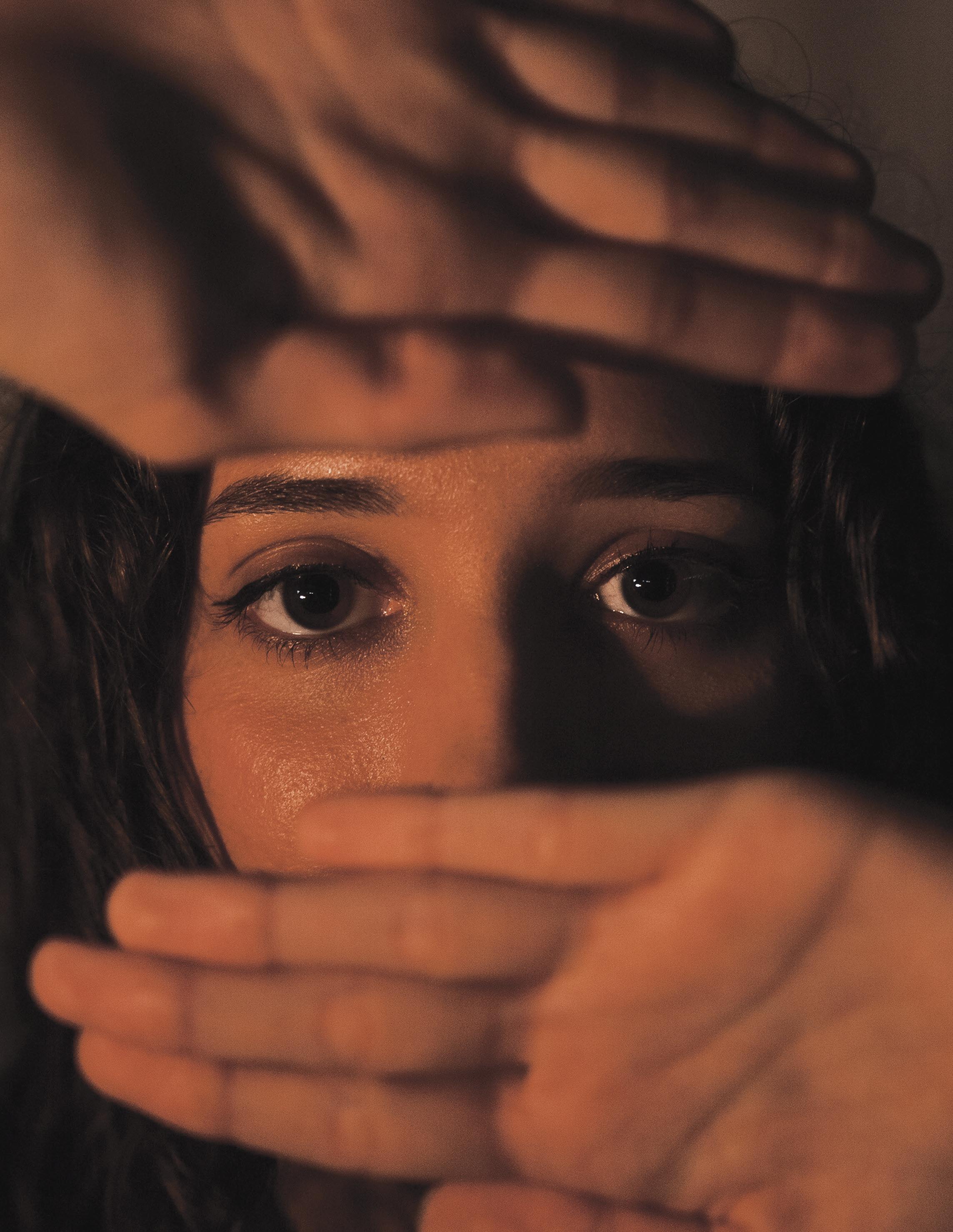 BY VIVIANA CHUAH
BY VIVIANA CHUAH
Despite the uncertainty of her future health, BYUH student rejects defeat, prepares to become a doctor to help others
Mersadies Morgan poses for the camera.
Photos by Yui Leung. Graphics by Yichi Lu.
Mersadies Morgan said she has worked to ensure her illnesses didn’t define and limit her. Diagnosed with scoliosis, or curvature of the spine, at age 11, she said she had the option to live the rest of her life in a wheelchair and do nothing due to her condition. “But what kind of purpose would that be? I would hate my life not doing anything and feeling like a burden to society. I could never. I’m too much of a strong-willed person. I have to be doing things.”
Having experienced limited help with her medical issues from 30 doctors and different treatment alternatives, Morgan said despite everything, there are still things to look forward to. She said, “I know tomorrow I’m going to wake up in pain, and it’ll be the same next day. And that [is] really hard. .. I was suicidal the first year.
“I remember reading my patriarchal blessing and seeing all the things like you’ll have, a family and like, getting married, and all
these things, and I was like, ‘Okay. There’s good things to look forward to even if it’s tough. I mean, everybody’s life is tough.’”
Living with several severe illnesses
Morgan, a senior majoring in biology from Idaho, said since she was diagnosed with severe scoliosis, she has suffered from various illnesses. As a result, in her early teenage years, Morgan said she went through several surgeries to treat her scoliosis.
At 16, Morgan shared she and her family had the strong impression to see a surgeon although there wasn’t an acute emergency. She said the surgeon discovered one of her screws, inserted in her last surgery, was in the wrong spot.
It was one of the worst summers, Morgan said, because the doctors decided to remove all the screws and put in a new cement screw, which led to multiple surgeries and months of being bedridden. This experience “put her body through much trauma,” she added.

FALL 2022 ISSUE 2 • 23
“I’m in pain like nobody has experienced, but Christ did. At first, [living with the pain every day] was a really isolating experience, but [after] learning to lean on Him and find purpose in my life, things have been better.”
““I know tomorrow I’m going to wake up in pain, and it’ll be the same next day. And that [is] really hard. .. I was suicidal the first year ... I remember reading my patriarchal blessing and … I was like, ‘Okay. There’s good things to look forward to even if it’s tough. I mean, everybody’s life is tough.’”
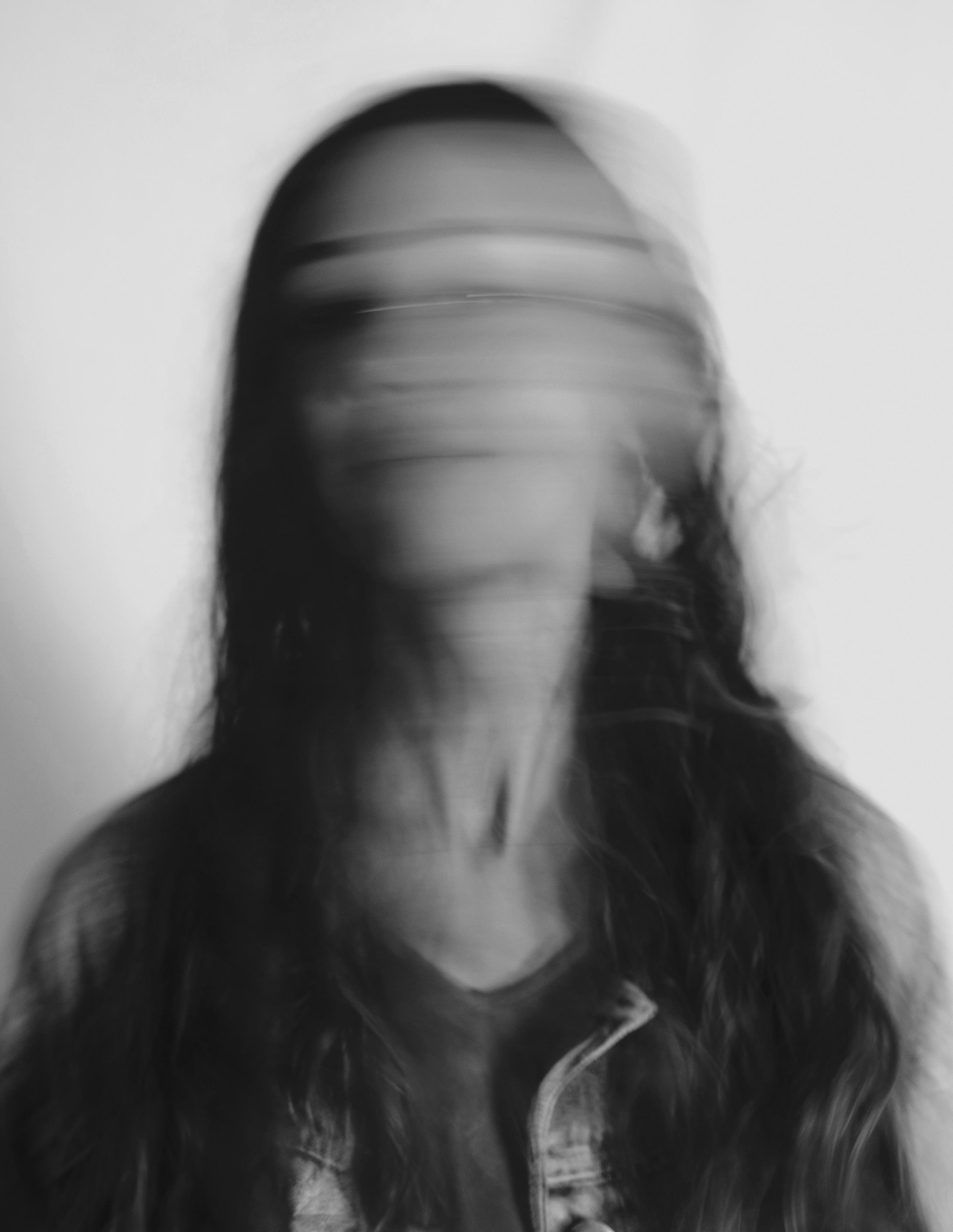
Consequently, she said her immune system was affected.
During her senior year in high school, she said she developed an unexpected illness called dysautonomia. According to the website Cleveland Clinic, people with the illness have a malfunctioning autonomic nervous system that can, among other things, cause heart, blood pressure and breathing problems.
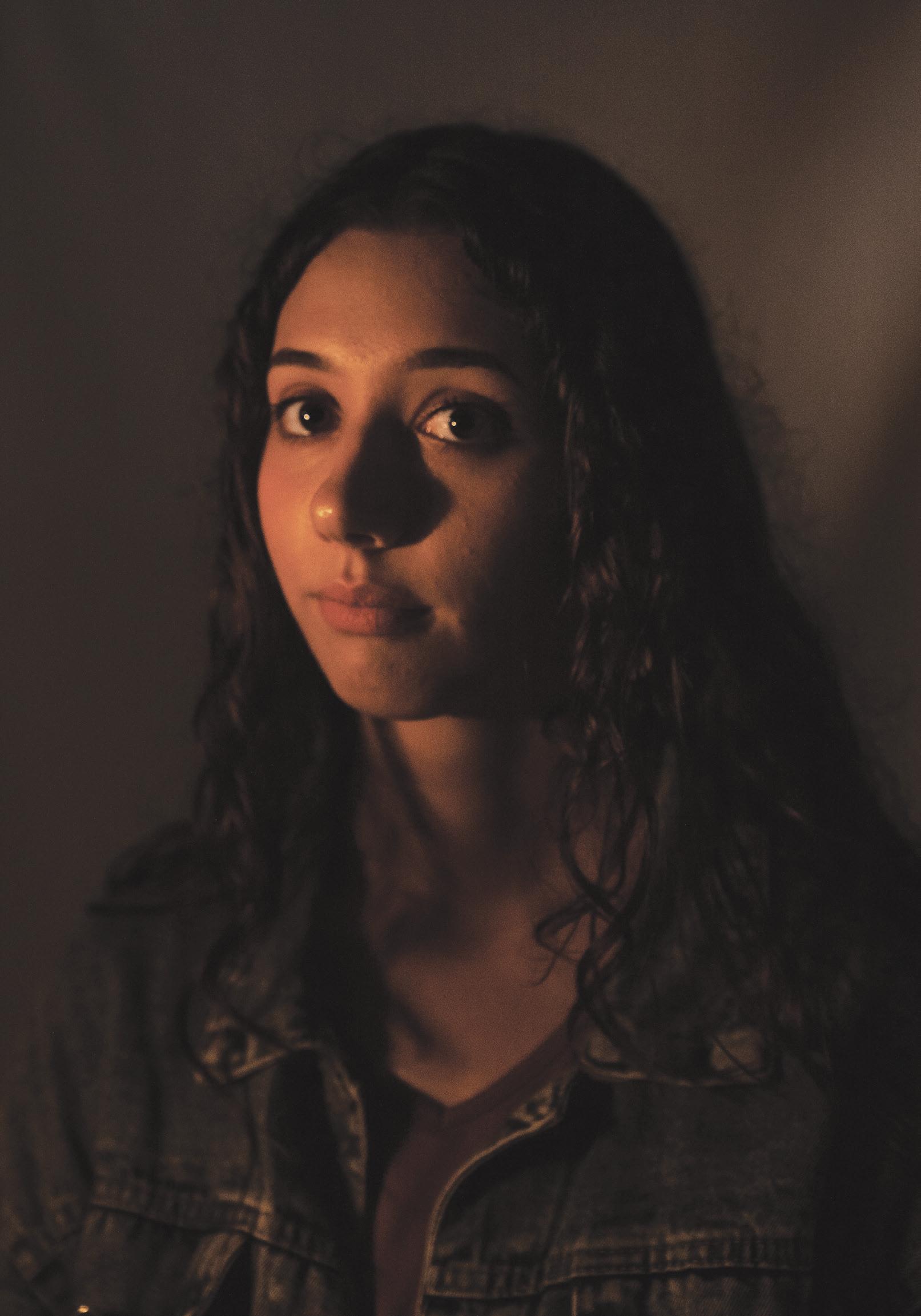
Morgan said she was diagnosed by doctors at the University of Utah, but due to it being a new disease, the doctors could only offer her limited help. Morgan said she did her own research and found her condition was most likely caused by previous trauma and showed up around puberty.
After transferring from BYU–Idaho, Morgan shared she knows coming to BYUH has been the right decision. “I kind of wanted to get out of Idaho, experience a different culture [with] more diversity. I went to Kauai when I was 6 months old, so I’ve always wanted to come back because I don’t really remember that.”
In Morgan’s first semester at BYUI, she said she had a note taker because she couldn’t take notes normally. “It was so embarrassing because people would look at me like [I’m
an] attention seeker.” People don’t see that the “increased use [of hands] makes the pain worse,” she said.
Morgan explained if she uses too much of her hands, they feel “like being shocked in different places,” and the migraine that comes afterwards feels like “being stabbed randomly.”
Due to bad circulation and blood pooling, she said her legs turn purple and she gets lightheaded whenever she stops moving. Morgan said she has discovered ways to live with her disorder, one of them being to avoid food that could give her migraines.
A passion for helping others
Morgan explained when she first developed her condition, male doctors said she was fine and prescribed her an antidepressant, instead of fully considering her symptoms.
She said during that time, she experienced first-hand how the male dominance in the medical field impacted her since women are usually not taken seriously.
Morgan said she wants to change that by becoming a doctor herself. Having found her passion in the medical field, she shared she wants to become a psychiatrist.
Being able to help people spiritually and mentally who are dealing with similar conditions brings her joy because that was how she started her healing, she added.
Morgan said she has also been active in school extracurricular activities and has been the president of the Healthcare Professionals Club for the past three semesters.
Her pain doesn’t stop her, she shared, from getting her clinical hours at Adventist Health Castle in Kailua and working at the BYUH Museum of Natural History.
Above all, Morgan said having faith in her Savior, Jesus Christ, has comforted her. She said, “I’m in pain like nobody has experienced, but Christ did. At first, [living with the pain every day] was a really isolating experience, but [after] learning to lean on Him and find purpose in my life, things have been better.”
“I think that this is just going to be my trial, at least for a little while. I mean, I know that like Christ will take it away eventually....
“Maybe it won’t be in this life. Maybe there won’t be medical treatments while I’m on Earth, but like, someday, you know, we’ll get a perfect body.”
•
FALL 2022 ISSUE 2 • 25
Portrait of Mersadies Morgan who plans to become a doctor to help others heal physically and spiritually.


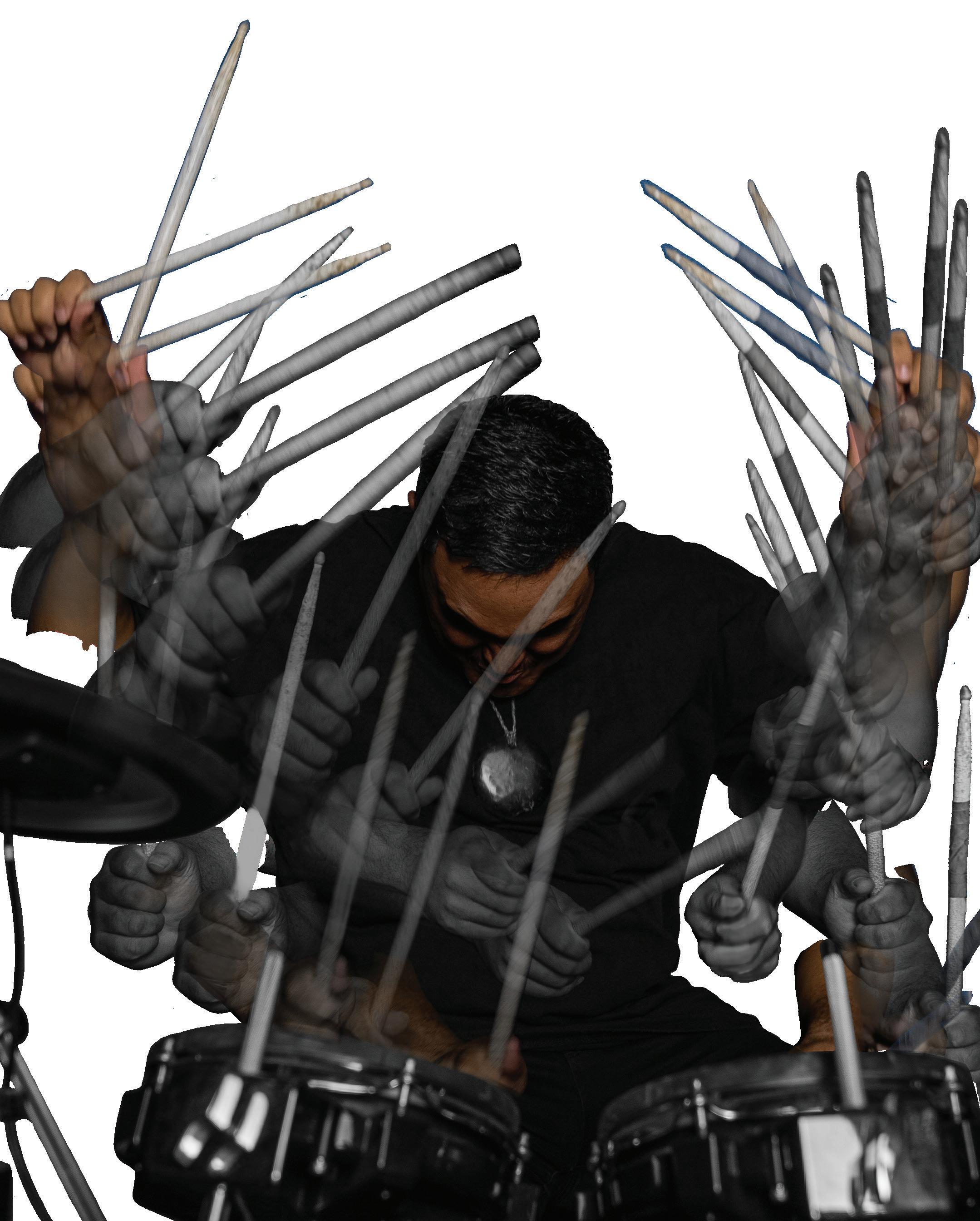
WITH GOD THE JOURNEY TO BECOMING RIGHT
BY MAHANA TEPA AND RANITEA TEIHOARII
After being on his own since he was a senior in high school, Quincy Tahiata said he was able to turn his life around from getting involved with gangs and going to jail, to serving a mission and coming to BYU–Hawaii in an effort to build a new life and end the cycle of dysfunction in his family.
“I want my family’s cycle to end with me. I want my future generations to do things and live differently than I did,” said Tahiata, a senior from Australia majoring in Pacific Island Studies and social work and who is getting married on June 28, 2023, to his fiance, Michellae Timata.
Tahiata said his personal journey allows him to assist and understand people’s pain in life. He explained, “If someone I met doesn’t know who they are, I’ll guide them through and give them direction. Self-worth and self-identity are important attributes to move forward in life.”
After several years without purpose, Tahiata said a simple email from his friend who was serving a mission changed his life forever. His friend told him, “You are a child of God, and Heavenly Father loves you.”
Early stages of life
When Tahiata was 7 years old, he said his father was diagnosed with Alzheimer’s disease and later passed away when he was in high school. He grew up in both New Zealand and Australia without his parents, Tahiata said, “My dad was sick, and my mom had left when I was young. So nobody was around to give me directions.”
Tahiata explained the lack of attention growing up and the need to support himself led him to criminal and gang activities. He said, “I’ve been arrested and jailed. I was always fighting and selling illegal drugs to obtain money.”
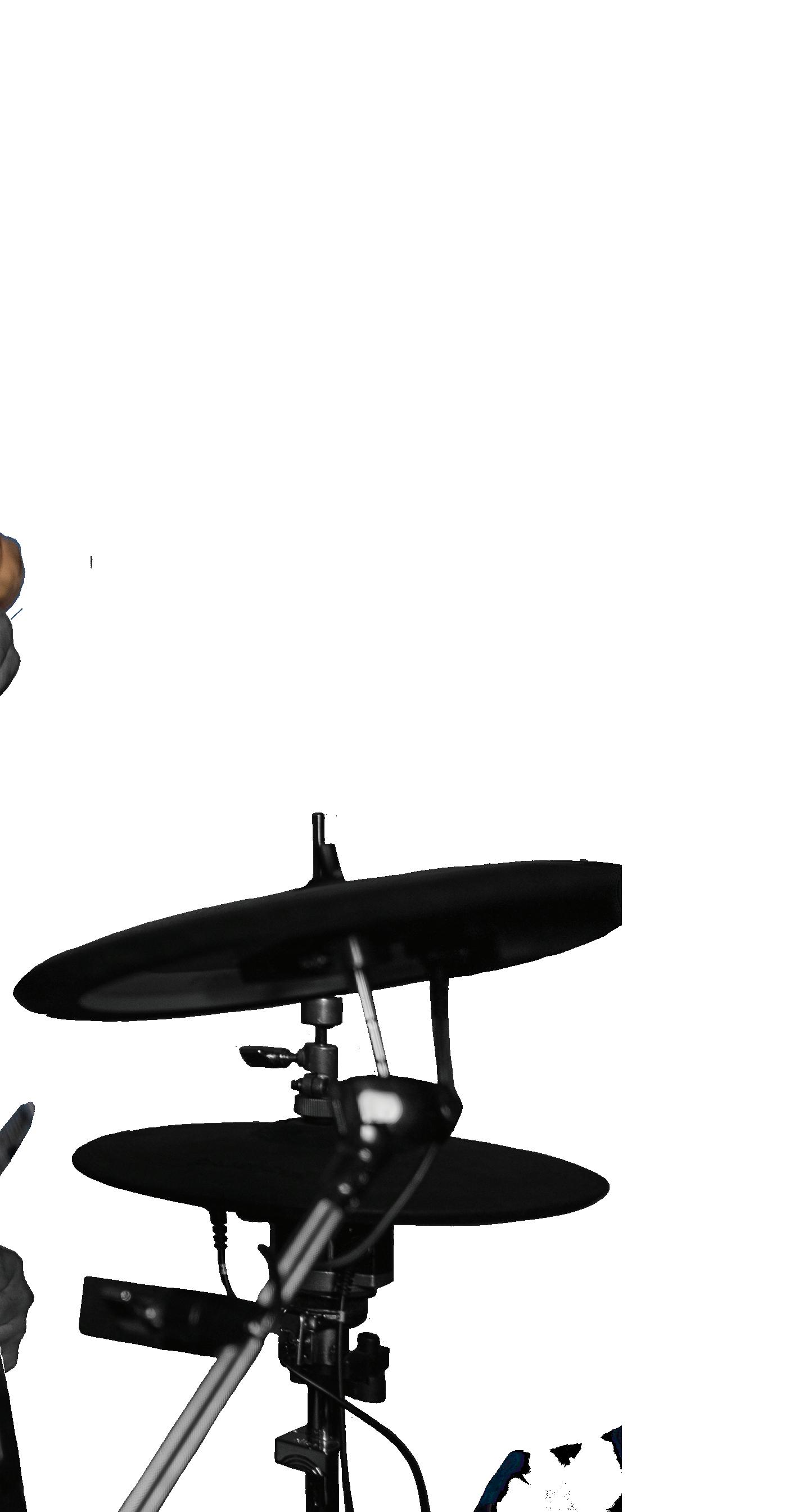
With involvement in gang activities in Australia, Tahiata said, “I was not the only family member involved in these pursuits but also two of my brothers have been in jail.” Although he was able to recover and step away from his previous life, Tahiata said leaving behind his family has still been a challenge for him. “I love them. They will always be my mates, but I am now following Heavenly Father’s plan for me.”
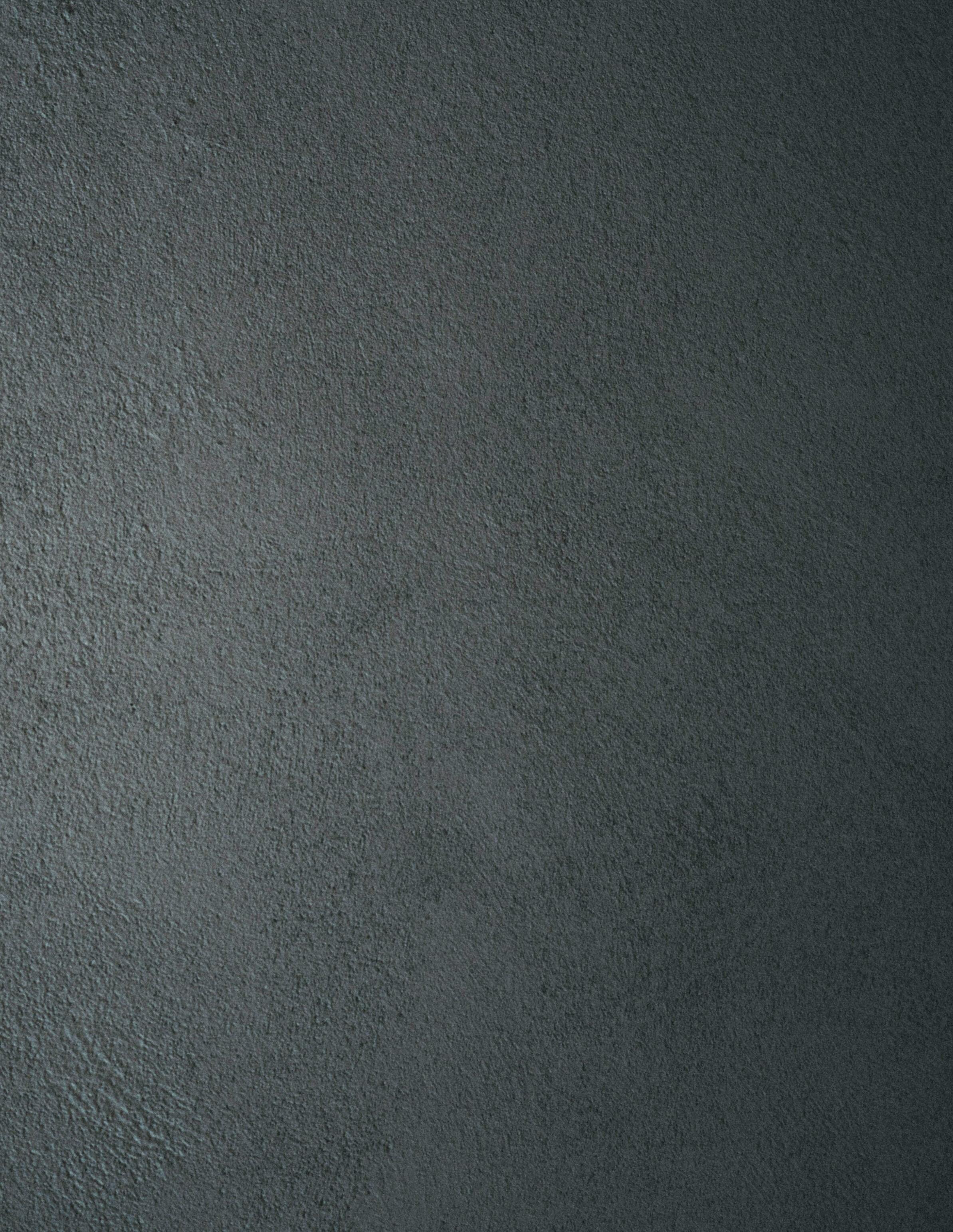
BYUH student chooses to leave delinquent life behind in hopes of breaking his family’s dysfunctional cycle
Tahiata playing the drums.
Photos by Yui Leung. Graphic by Akira Nagahama.
Despite his rough journey through life, Tahiata said as a professional dancer, he was privileged to be on contracts with different cultural groups to travel around the world and promote his Polynesian culture.
Peniasi Cibaciba, a senior from Samoa majoring in Pacific Island Studies, described Tahiata with the word talented.
He shared, “[Tahiata’s] talents as a musician makes a difference in people’s lives. He is often invited to many events on the island. These are opportunities for him to seize.”
Tahiata shared, “One day, I looked back at my life, and I realized it was pointless.” He explained, “What was the point of traveling around the world and coming back home to nothing? I know I deserve better than this. I knew I wanted to change and be successful, and I changed.”
Tahiata explained, “I will change for myself but never for anybody. I want people to take me as I am or leave. I want them to embrace my realness and to accept me the way I am.”
Cibaciba said he admired Tahiata’s ability to change and his bravery while staying true to himself. “He is a very straightforward person, and he is very himself. … He is a very good roommate,” Cibaciba said.
A better path
Tahiaita said he joined the Church of Jesus Christ of Latter-day Saints at the age of 10. Through the influence of his friend serving a mission and after personal reflection, Tahiata said he seized the opportunity to change his life and serve a mission.
“The process of repentance and the preparation for my mission was challenging and worth it,” said Tahiata.
He explained, “I went through extra paperwork because I had so many bad activities before.”
After going through the repentance process in June 2016, Tahiata said he was called to serve in New Zealand.
As a token to begin his new life as a disciple of Christ, Tahiata said he cut off the most significant part of himself to serve the Lord: his long hair.
He shared, “I never wanted to cut my hair, but it showed the Lord I was willing to do anything to change and follow him.”
After returning from his mission in 2018, Tahiata expressed gratitude for the eternal perspective he now has and his desire to keep his temple covenants and gospel principles.
Continuing his journey at BYUH
With the desire to receive an education, Tahiata said he was prompted to attend BYU–Hawaii.

He explained, “BYU–Hawaii was free. Scholarships were provided, and this was the start of my life as an educated person with no debt because I was blessed enough to attend a university that provides for its students.”
When he first came to BYUH, Tahiata recounted, “I arrived at [BYUH] with only $80 in my pocket, which I spent to get the TB shot.”
Without a doubt, Tahiata said he knew Heavenly Father would provide for him. “I know there’s a reason behind this challenge. I have done my part, and I know Heavenly Father will unexpectedly add more to my efforts,” he added.
Appreciated and recognized by cultural specialists for his talents as a musician, Tahiata said, “The opportunities for multiple jobs were offered to me both at the [Polynesian Cultural Center] and on the island of Oahu. I knew this blessing came from the Lord.” •


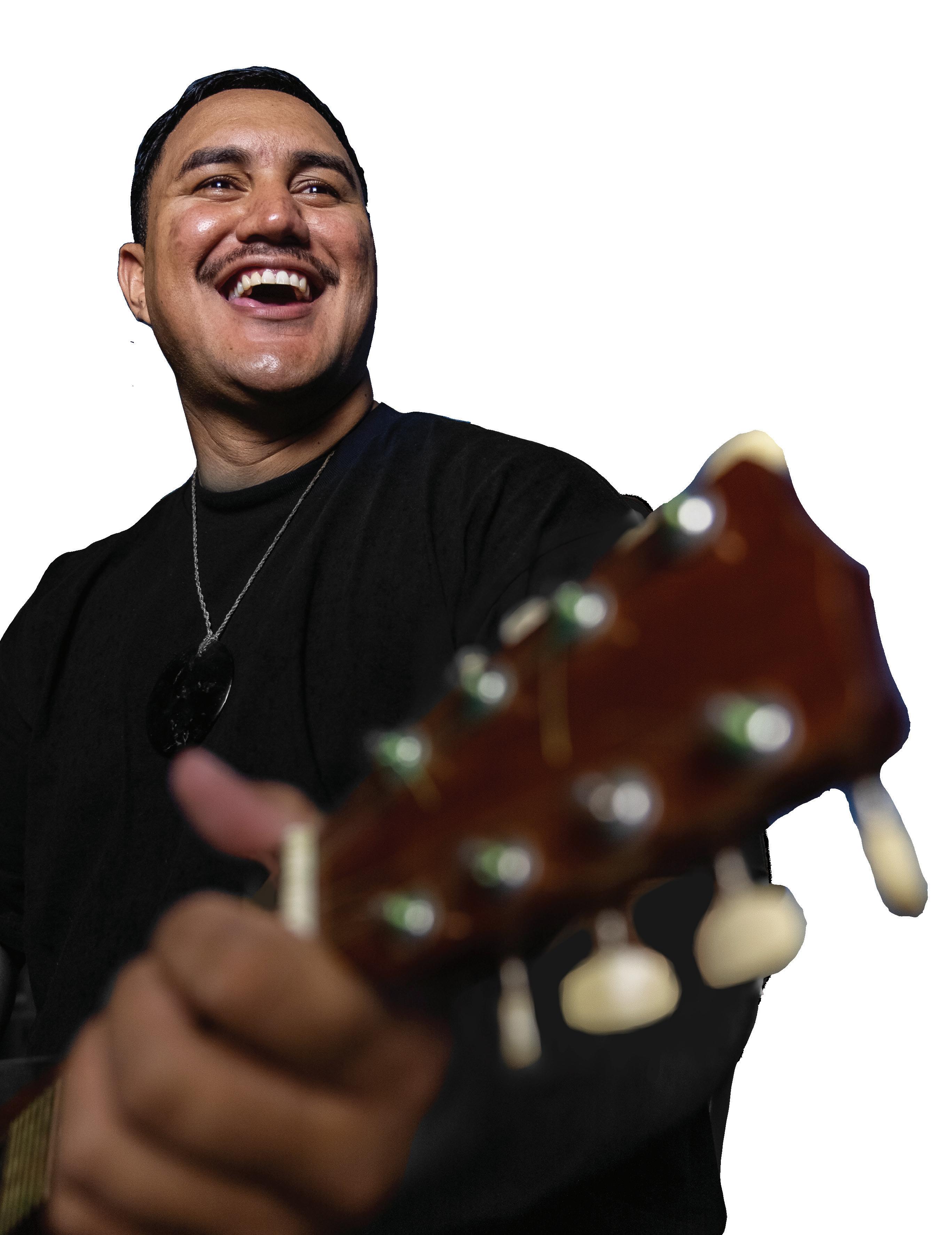 Tahiata playing the Tahitian ukulele.
Tahiata playing the Tahitian ukulele.
DISCIPLINED AND TRAINED
IN KOREA
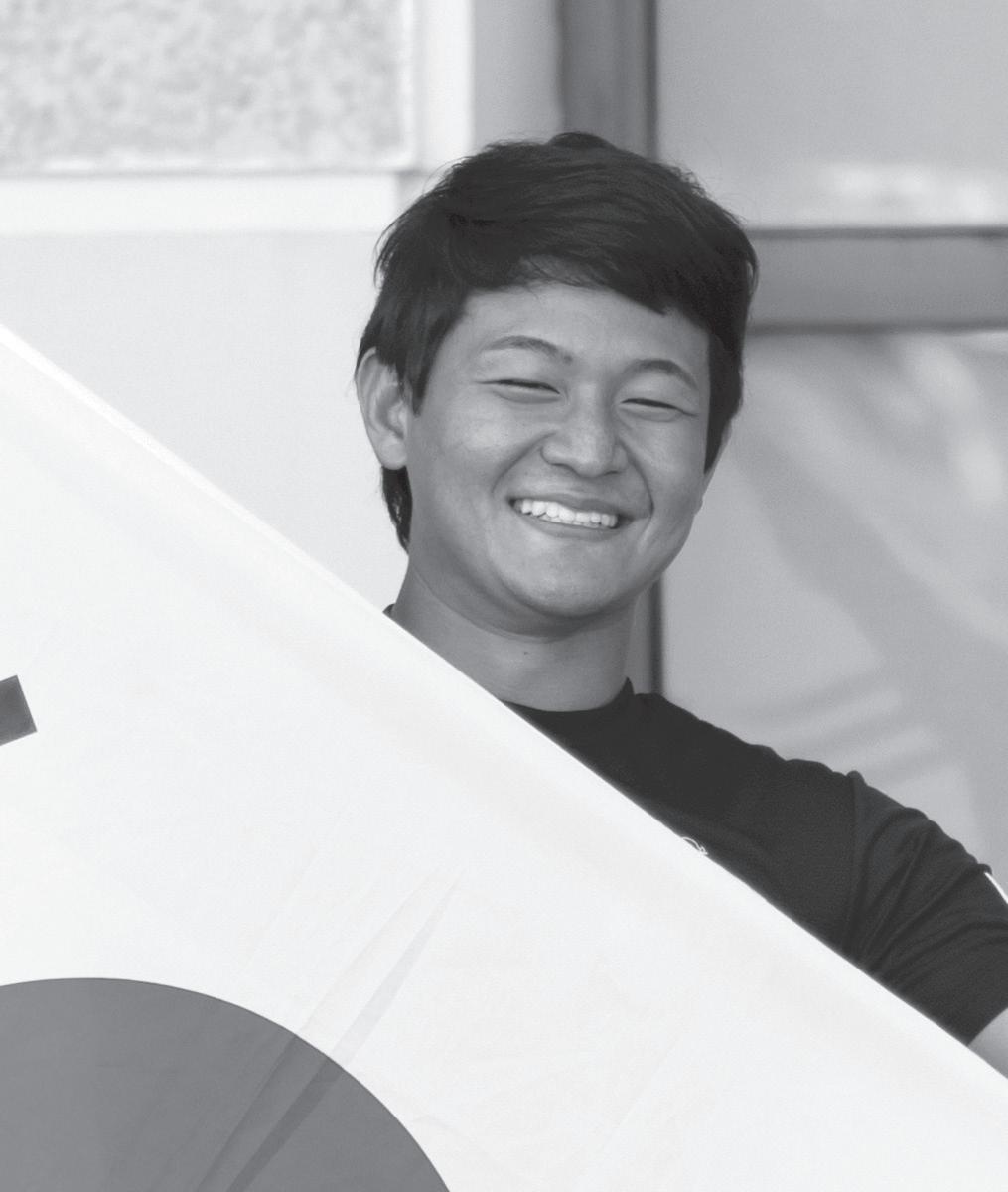
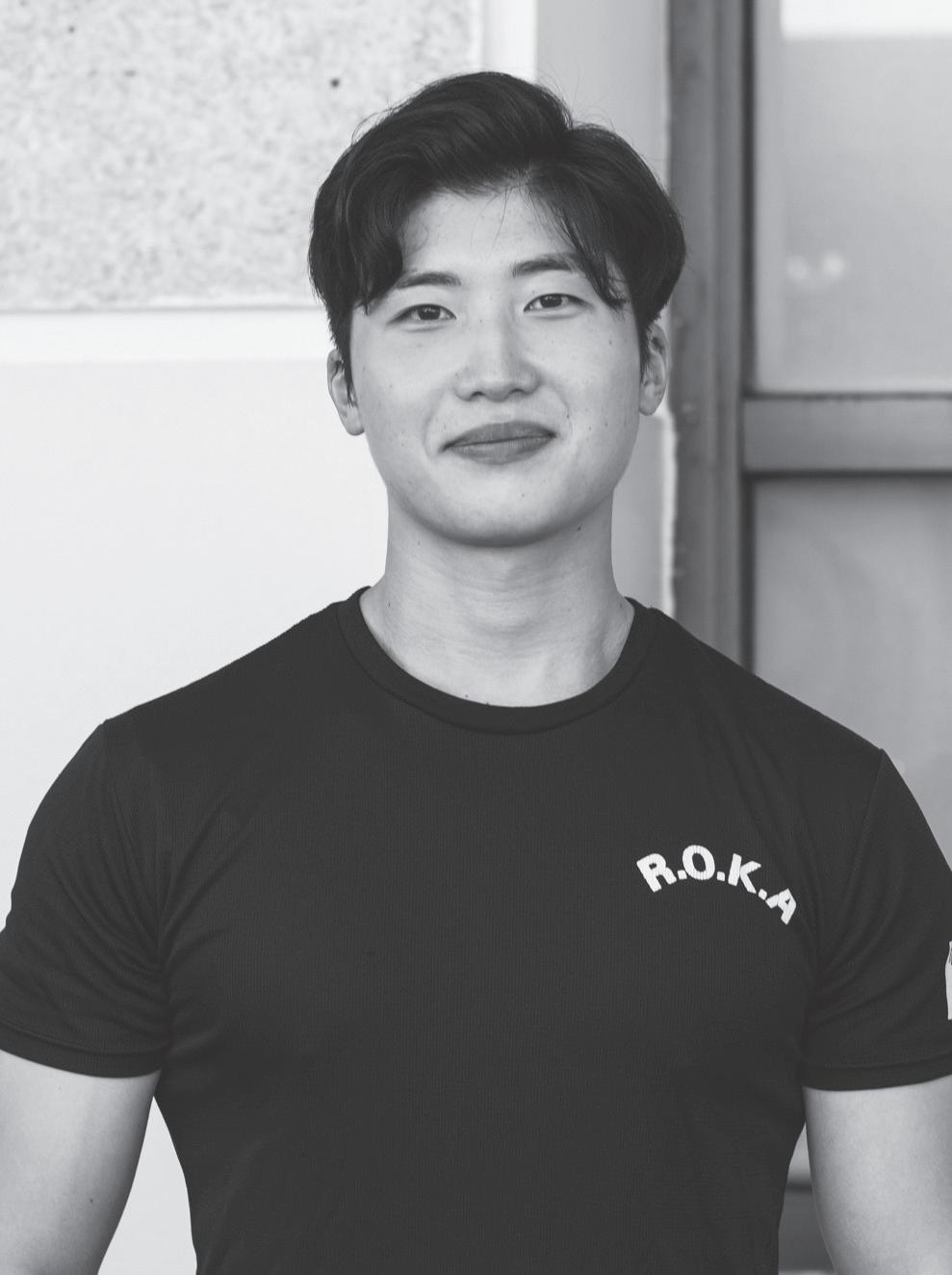

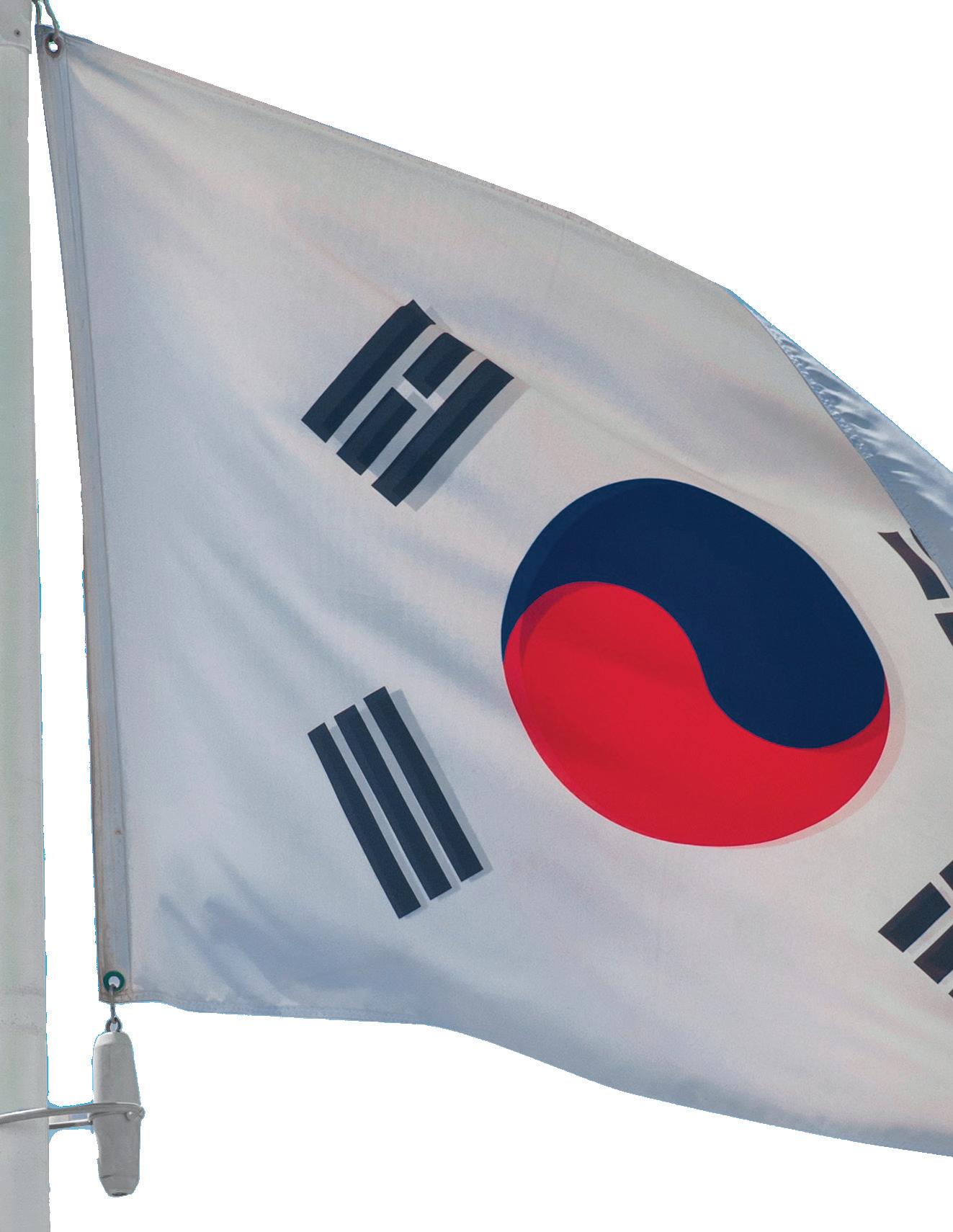 BY SEIKA FUJITANI
BY SEIKA FUJITANI
Korean students at BYU–Hawaii share their stories of military service and how it changed them for the better
Every morning, the day starts with a bell ringing at 6.30 a.m., says Jake Woojin Han. The Korean soldiers get up and stand in a row waiting for their two-mile run to start before they are sent to do their different duties, said Han, a junior majoring in accounting from Gwangju, Korea.
In Korea, all men between the ages of 18-30 are required to serve in the military for a period of 18-to-21 months. There are no exceptions and even K-Pop idols and other celebrities must serve. This program has been enforced to prepare their country for wars and protect their homeland, he said.
Annette JiSu Shin, a junior from New York majoring in peacebuilding, served in Korea as a missionary and she said she noticed differences between Korean missionaries who served in the military before their missions and missionaries who didn’t. She said, “They are more mature, disciplined, more confident, and aware of others.”
Grueling training
Han said soldiers usually train, dig holes, reinforce their boundaries, and clean and manage tanks or cars. They finish working at 5 p.m. During his basic training, Han said he specialized in artillery, which are large-caliber guns used in warfare on land.
Han explained while smiling, climbing on the mountain at night was one of the most challenging parts of military service. “Some-
times, you have to get up at midnight and go up to the mountain for two hours. If somebody saw you were sitting down and resting, or put down your gun, you would be punched. Then, you watch out for your base to make sure nobody would break in,” Han said.
Buhyun Jeong, a junior majoring in exercise and sports science and education from Incheon, Korea, said his military service included climbing a mountain while carrying a 200-kilogram bag and digging holes. He served near North Korea and said he remembered his feet and hands felt almost frozen during the entire fall and winter.


Jeong stated his responsibilities in the military included supporting commanders, who were much higher in rank than him, and following them all day to check on military training areas in the mountains. He said it was sometimes scary to work in the position because some of the leaders were intimidating and acted “like tigers,” frightening their subordinates.
Motivation for military service
Herman Kim, a junior from Jeonju, Korea, majoring in biochemistry, said he wasn’t very excited to serve because it was just a duty to check off in a Korean man’s life.
Han said he had the same thought as Kim. However, Han added his motivation was that he could protect his family and friends by serving in the military. He shared it was hard for
him to not have the freedom to see his family or friends, but they always showed gratitude for his service whenever he called them.
Jeong said he enjoyed serving in the military. “I loved to serve in the military because it was a super good honor to serve my country.”
However, his face turned solemn as he shared his feelings about Korea’s conflict.
Jeong said, “The saddest part was I had to prepare for war with North Korea, because North Korea is also my family even though North Korea is the first enemy in my country for now.”
Jeong said if you look back to about 75 years ago, South Korea and North Korea used to be one country and currently have many of the same cultural roots. Jeong’s grandfather was from North Korea, but during the Korean War (1950-1953), he moved to South Korea.
Competitive military culturee
In Korean culture, age is very important and older people must always be shown respect by younger people, shared Jeong. However, military service is a rank society, Jeong said.
Even though Jeong went into military service when he was 24 and was older than other soldiers around him, he still had to obey younger soldiers who held higher ranks than him.
Kim explained when new soldiers come to the base, senior soldiers often judge who is
 Shown left to right, Jake Woojin Han, Herman Kim, and Buhyum Jeong were all in the Korean military.
Photos by Kristen Staker Graphics by: Marlee Palmer, Sugrmaa Bataa (Kendra).
Shown left to right, Jake Woojin Han, Herman Kim, and Buhyum Jeong were all in the Korean military.
Photos by Kristen Staker Graphics by: Marlee Palmer, Sugrmaa Bataa (Kendra).
the best soldier in a new group. He said people on the base tended to change how they treated new soldiers depending on their skills.
Kim shared a dramatic story about a friend who was not good at accomplishing tasks as a soldier. Many comrades disliked him, but Kim always helped him because he was taught the Gospel of Jesus Christ, which teaches about serving others.
Even though Kim always tried to be a good friend to him, the friend began to blame his mistakes on Kim. “Because the friend started hurting me emotionally, I ended up not being able to control the situation anymore.”
Then, Kim said he decided to stop helping or even saying Hi to the friend. However, he explained that a scripture touched his mind one night.
In Mosiah 4:17, the scripture says, “ … The man has brought upon himself his misery; therefore I will stay my hand, and will not give unto him of my food, nor impart unto him of my substance that he may not suffer, for his punishments are just.”
Kim continued, quoting another scripture in Mosiah 4:19, which says, “For behold, are we not all beggars? Do we not all depend upon the same Being, even God, for all the substance which we have, for both food and
raiment, and for gold, and for silver, and for all the riches which we have of every kind?”
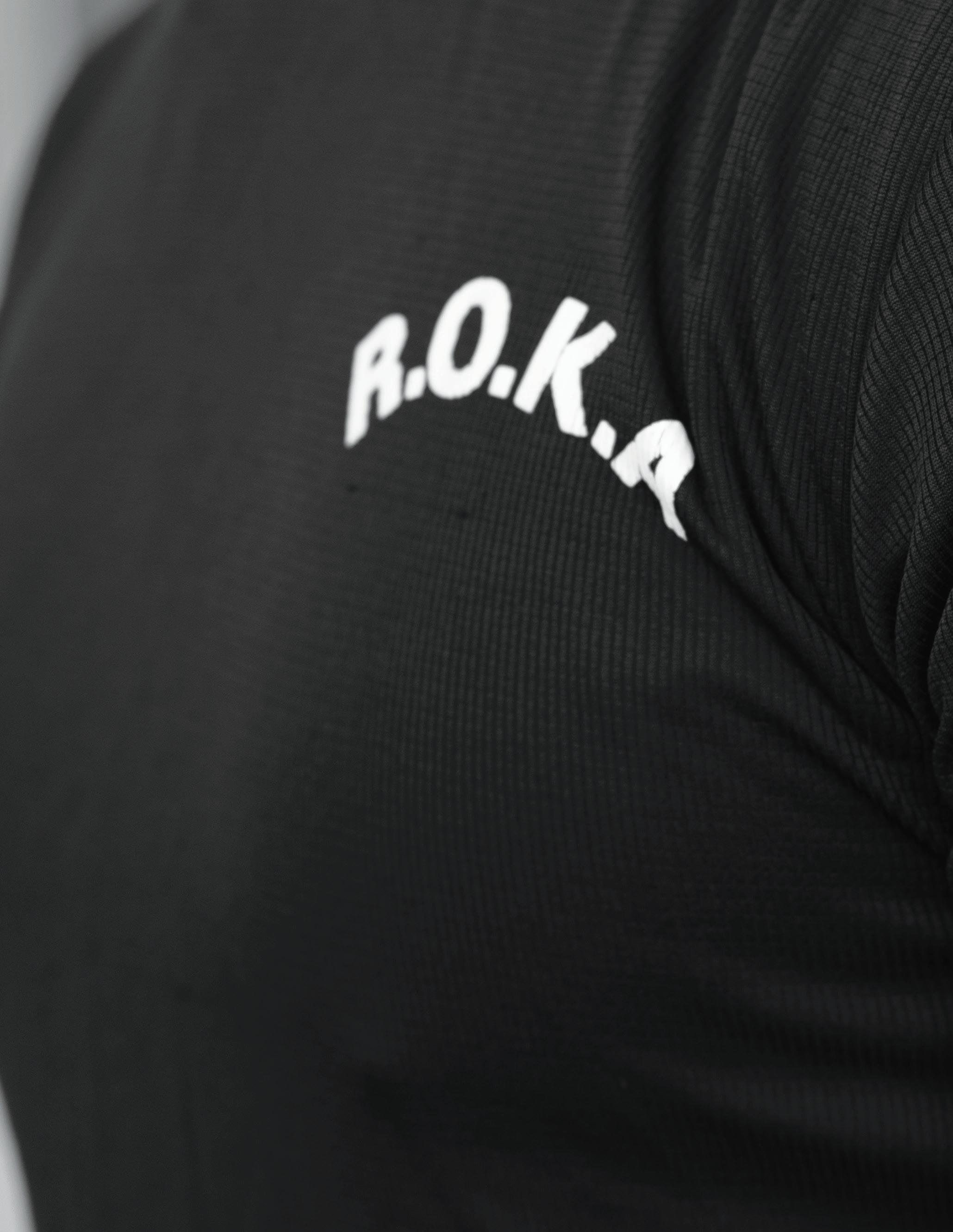
Kim said, “I realized I had been doing the same thing as the Jews. So, I decided to continue to try to be like Christ and help the friend again. Actually, it was effortless because I was just taught by the scriptures. It was easy for me to be kind to my friend because I am also the one who needs help from God.”
When he served the soldier, he said, “I felt like I am ‘only in the service of … God’.” Kim explained the actions he took with kindness did not make the friend change, but the life lesson changed him.
Creating sacred places
Those in the military usually can’t go outside of the base, explained Han. There were some churches on the base, he said but not the Church of Jesus Christ of Latter-day Saints.
Kim said, “The military base was definitely a place where I would be isolated from the Church, but it strengthened my faith…. Military service is one of the most spiritual times in my life, as well as my mission.”
Since most people in the military service were not members of the Church, the standards the church members held were very different from theirs, said Kim.
Kim said he intentionally studied the Book of Mormon or Preach My Gospel (PMG) every day and prayed diligently because he had planned to serve a mission after his military service.
Kim looked back on his military service and said, “It was a blessing that I know my Heavenly Father understands me even if others can’t. So something that might be hard for others did not matter to me because of [God’s] support. [Now] I study the gospel even harder to keep my testimony than before my military service.”
Life lessons
Han explained the military service term was very long for him.“I felt like time had stopped. I counted how many days we had left everyday.”
However, he shared he learned to “endure to the end” through his military service. There were some people who came back home from the military because of health problems. He continued, “I was able to fulfill my duty full-time, and I felt a sense of achievement. Because of this experience, I can do anything after this military service. It helped me to be more responsible for the rest of my life.”
Jeong, who worked with commanders his whole military service term, explained he was impressed by them, and they taught him the valuable lesson of forgiveness.
In the military service, regular soldiers would sometimes make mistakes or cause trouble, said Jeong, and soldiers in their same groups wouldn’t like them because they got into trouble. However, the commanders forgave them, explained Jeong, and would work to help them become accepted again by their fellow soldiers, said Jeong.

Jeong shared, “ I saw Jesus Christ’s attributes in the leaders.” Some of his leaders also believed in Jesus Christ even though they were in different churches, said Jeong.
Jeong, who went on his mission before his military service added, “Missionary work is much harder than military service because we have to serve God while military service is for my country. God is perfect, so I always tried to be perfect. I didn’t want to make any mistakes because missionaries represent Jesus Christ.” •
BE TRUE TO YOURSELF


Beauty
BY MCKENZIE ALVAREZ
Emelia Mike, a junior from Malaysia studying communications, said she struggled with her overall beauty and self-worth for years. She explained beauty to her for now “is being true to yourself. Because when you are true to yourself, people just know. Like you can feel the presence.” However, Mike said her journey hasn’t always been this way.
Mike said she has had a hard time accepting her body and the way she looks. When she was in her pre-health check preparing to serve a mission for the Church of Jesus Christ of Latter-day Saints, Mike said she was diagnosed with bulimia.
Just 22 years old at the time, Mike stated, “I was in denial about the diagnosis. I didn’t want to be labeled.” Mike said her family would find out about her diagnosis following her mission.
Struggling with an eating disorder
Mike said she has struggled with thoughts associated with bulimia, since age 15. “People just decided I was fat, and then it [became] a joke. At first, I was fine with it. But I think it started affecting me when my relatives and my parents started telling me that I gained weight.”
“For the older generation, like [our] grandparents [and] parents, a typical Malaysian beauty standard would be [being] petite, lightskinned, [with] straight and silky hair. That is a very common beauty standard.”

Mike first heard the term “eating disorder” at age 16. She said, “I heard about it, but just briefly. I didn’t want to look [into it] or research about it because… it kind of scared me.”
Mike said going to class and learning about the side effects of bulimia added to her knowledge of eating disorders and would
later help her understand the severity of her condition. Her environment in school would increase her insecurities and make her feel worthless and lonely at times, said Mike. “A few of my classmates, they just kept calling me fat.”
Hurtful outside voices
With family and classmates consistently commenting on her weight, Mike said she felt very sad and alone. At age 19 she was publically humiliated by a teacher, said Mike, and she
students
remembers it to this day. “[The teacher] asked me to stand up and read out loud. I was reading out loud, and she just kept staring at me. So, I looked at her said, ‘What?’ [The teacher] said, ‘Amelia, you are so beautiful, and yet you are so fat.’” Mike continued, “I was speechless. Then everyone was laughing at me.”
Mike said she felt many emotions at this time, but mostly she felt overwhelmed and worthless. “I was so speechless that I put down the book and cried in the school bathroom.”
is defined by being true to yourself and living comfortably in your own skin, says BYUH
Emelia Mike. Photo taken by Yui Leung. Graphic by Akira Nagahama.
Frustrated and upset, Mike continued, “No matter how good I am in my academics or other things, people would always see my physical appearance.” She explained, “It’s really sad that it happens in academic [settings] and a lot of different places. ... They focus so much on the physical [appearance] but not what’s inside your head, which is what they really should be focusing on.”
The official diagnosis
Following her official bulimia diagnosis, Mike said, “I kind of knew, but then I was in denial until the doctor was like, ‘You definitely have [bulimia].’ When she said that, I was like, ‘You know what? I [can] finally accept that.’ It kind of made me sad, because I don’t want to put a label [on it]. When it comes to an eating disorder, it has a lot of negative [stigmas]. And I [didn’t] want to be part of that.”
Mike served as a missionary in the England Manchester Mission. During her mission, she said she continued to fight with her bulimia. She recalled, “It was emotional and ugly at times.”
Mike said after her mission she started to see a counselor. The counseling was difficult,
she said, but the backlash from her loved ones was worse. She said certain family members were so mad with her.
“I was crying because I was so confused. In my head, I wanted to heal myself, and I needed some support from them.”
Learning self-love
Noel Lakena Fulumu’a, a sophomore from Samoa majoring in social work and friend to Mike, said she has also felt at times she doesn’t fit into her culture when it comes to her body image.

She said this is because people have judged her on her physical appearance and excluded her in the past. She shared she recalls being pointed at and teased by family and friends.
Fulumu’a said she has not struggled with any eating disorders. But she explained she still chooses every day to love herself.
“[As a] big girl growing up, a lot of the times I was excluded from so many things… Honestly, I had to really learn to just be myself. Like to love myself… I think I learned to not let people validate that part of me [appearance].”
Fulumu’a said no one will change their mind for you. People must choose to love themselves everyday, and “it depends on you, if you want to see that change.” In choosing to love herself everyday, Fulumu’a stated, “[I’m] doing my own thing. I used to be so worried that I’d walk into a room and people would look at me.
“But now I walk in a room, and I don’t care what they think. I’m just there for me. I show up for me. If I’m able to inspire someone, that’s all that matters to me.”
Despite not receiving the support she thought she would Mike said healing came for her when she moved to Hawaii. She explained, “I got to start my new life. A new chapter.” But Mike also said she had some reservations she about coming to BYUH.
“I’m not going to lie. A part of me [felt] so insecure that the girls would see me as the fat girl who just moved here. But no, it was the opposite. I was wrong. Then I got to meet [my roommates] and everyone.
“[They] are silly and funny and everything. It really makes me be more open and somehow helps me to accept myself.”
Mike said she knows it is a cliche, but the diversity and beauty of the campus ohana surrounding her motivates her to feel good about herself.
Mike said while her relationship with her body is better, this issue is important because it affects women and men.•
36 KE ALAKA‘I 2022
Left: Portrait of Noel Fulumu’a who said she learned to not let other people validate her appearance.
RIght: Noel Fulumu’a and Emilia Mike walk along the Flag circle.

PILOTING YOUR
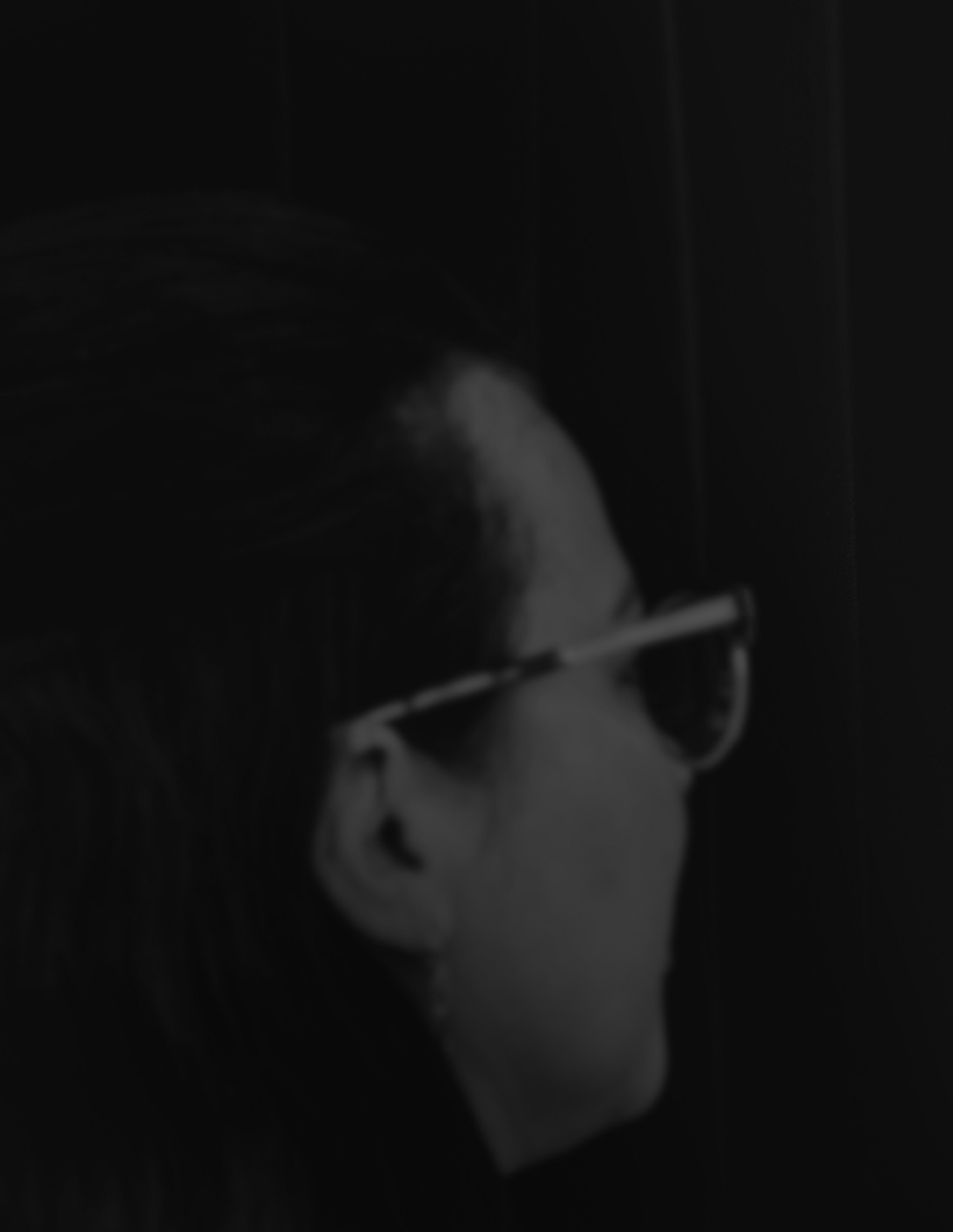
DREAMS
A BYUH student works to becoming a pilot despite the challenge of living with a learning disability
BY NICHOLE WHITELEY
Brenton Collet said dyslexia is like continually running up a sand dune but never making any progress. Collet, a senior from Idaho majoring in HTM, said he was diagnosed with dyslexia his freshman year of high school. He explained it feels as if you are sweaty and exhausted looking above at the immense hill you are trying to conquer, then looking behind to realize you have made little to no progress. He said it is frustrating, “but if you love what you want to study and you love what you do, I think that makes all the difference.”
Collet added having a strong support system is like having a rope thrown to you, and someone slowly pulling you up. He said, “You’re still having to put your effort in, and it still [is hard] because you're going up a sand dune. But you’re also kind of being helped at the same time if you have the right people with you along the way.”
He said his wife has been the person at the top of his sand dune while at BYU–Hawaii. “She keeps me motivated. She keeps me focused,” Collet said.
What is dyslexia?
The Merriam-Webster Dictionary defines dyslexia as a “learning disability involving difficulties in acquiring and processing language that is typically manifested by a lack of proficiency in reading, spelling and writing.”
While the media often depicts dyslexia as simply switching letters like the “b” and “d” in the word bed, Collet said it is much more complex. He explained his dyslexia affects
his “cognitive ability to retain information.” Dyslexia is not memory loss, he said, rather, he explained he recalls information different from what he learned.
Taylor Collet, Brenton Collet’s wife and a BYU Provo alumna, said she understands her husband’s dyslexia as having “some kind of gate between the information going in and his understanding in his brain. In that gate, sometimes stuff can get through, but a lot of times it’s going through a bunch of different fun house mirrors.”
She continued, “The stuff that’s actually getting through is distorted, and so he’s getting part of it but maybe not all of it.” She explained because of this, he can read something several times and understand a new meaning each time “because it’s getting bounced off of different mirrors. He’s seeing it in a different light.”
Taylor Collet explained her husband learns more effectively and retains information better using his hands instead of just his eyes because it “bypasses” those mirrors in his brain.
Striving for flight school
Brenton Collet said he thrives when his classes are based in hands-on application and presentations - a key reason why he said he chose flight school. He explained although there is heavy reading, he will quickly be able to apply the practical skills that will help him retain the information.
He said because it is something he enjoys learning about, the extra time spent studying and reading for flight school will go by faster and will be worth it.
He said he has enjoyed the idea of flying planes since he was 4 years old. “I grew up with [my grandfather’s] stories about flying, and … working in the aviation industry [as an aviation mechanic for the U.S. Navy], and I was just captivated.” He continued, “My grandfather’s my hero. I owe a lot to him.”
He said he never thought of being a pilot until he took the project-based HTM course Customer Experience Optimization with Jeff Christiansen. Brenton Collet said he noticed after the class, he had subconsciously tied each project to aviation.
With graduation around the corner, he said he and his wife had been discussing his future plans, and she jokingly suggested becoming a pilot. After an entire winter break spent researching, he said he decided that was the path he should take.
Brenton Collet explained his decision was confirmed through prayer and temple visits. He said he continues to receive guidance and assistance from God to persevere through his learning disability as he prepares for flight school and shared his wife is one of the blessings God sent to help him.
 Taylor Collet comforting Brenton Collet.
Photos by Marwin Jay Villegas. Graphics by Sugarmaa Bataa (Kendra).
Taylor Collet comforting Brenton Collet.
Photos by Marwin Jay Villegas. Graphics by Sugarmaa Bataa (Kendra).
He said the place he feels the closest to his Heavenly Father and can feel his love is in the cockpit of an airplane.
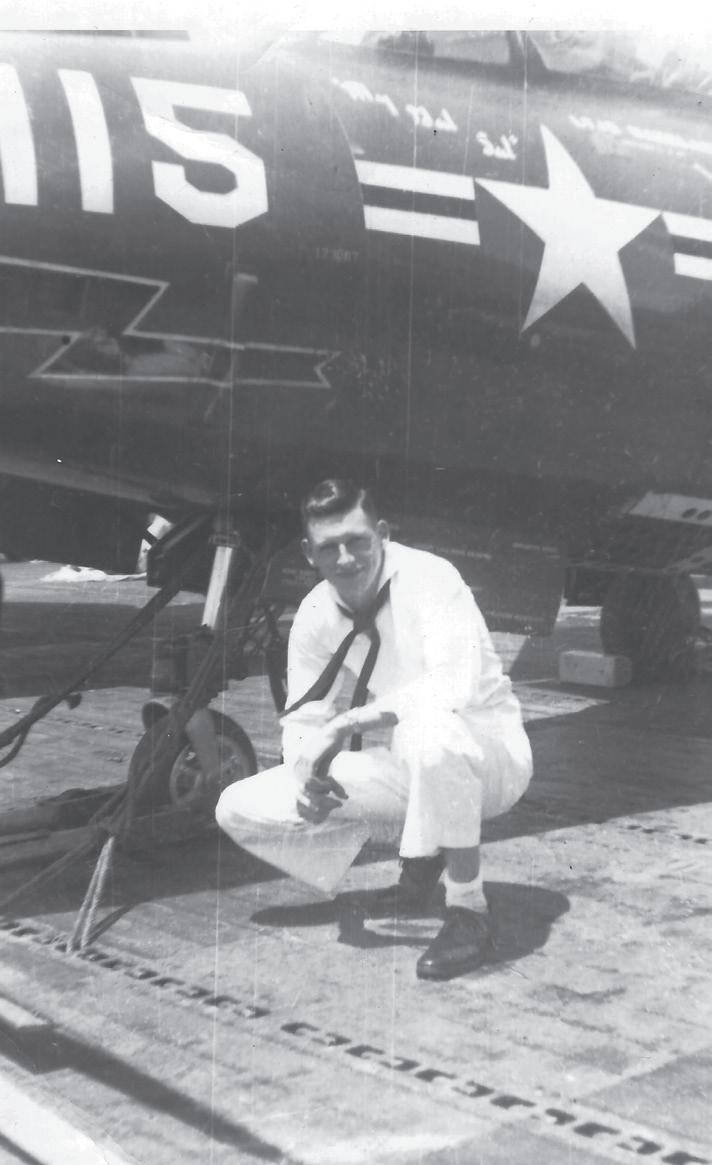
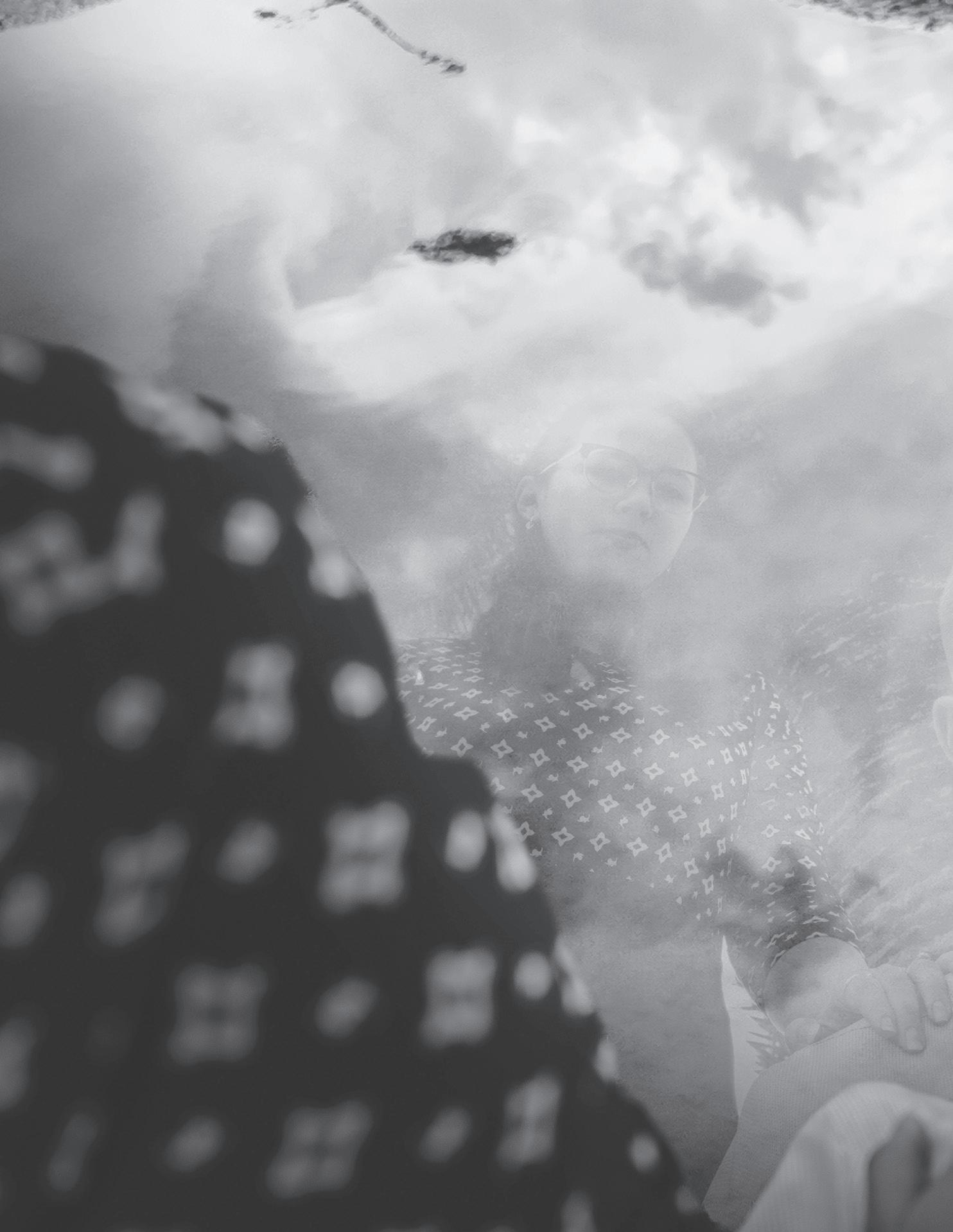
Amongst the roaring engines and the voices in his headset, “It is the most aweinspiring place for me. And I feel like I can see God’s creation of the Earth in a different light. … You’re looking down and you see the vast spread of God’s creation. There’s nothing like it. … And when the light peeks through those clouds at a certain point and you’re flying right in the middle of them, it is an unbelievable experience.”
A companions support
Brenton Collet said his wife has helped him navigate college with his learning disability by sharing her writing strengths. He said she understands his thoughts, which can sometimes be jumbled, and helps him articulate what is in his mind onto paper.
Taylor Collet said she enjoys helping him because she loves him, but she did not want to become a crutch for him. So she tells him, “I know it’s tough, but I want you to push yourself.”
She said it is like balancing on a tightrope. Sometimes she said she pushes him too far, and sometimes he relies on her too much. But over the years, she said, “He’s finally gotten to a point where he is able to balance it a little bit better like he’s helping me on that tightrope” and understands he needs to expend his efforts before relying on her for help.
He said when he first got to BYUH, he would get frustrated and upset at the time it took him to do an assignment that took his classmates half of the time. But recently, he said having his goal in sight makes all of the extra time, headaches and frustration worth it.
Brenton Collet said having a learning disability made him feel like he would never accomplish anything “major and grand,” but is now on the pathway to do so. “I know I can make it there. I know I can, even though I have learning disabilities. … I didn’t think that before [attending college].”
Dealing with depression and bullies
Brenton Collet attended high school in Tokyo at The American School in Japan. This school, he said, was geared towards sending the students to Ivy League schools, which meant it was a “fast-paced, lecture-based, test-heavy style of learning,” which is not the environment he said he thrives in, so he quickly fell behind.
“I got bullied extremely hard for being a member [of The Church], for being different, for being, I guess, not bright or like not as not as quick paced as the other students.”
Brenton Collet's grandfather working as an aviation mechanic in the Navy.
“
but if you love what you want to study and you love what you do, I think that makes all the difference. “
After dealing with bullies for several years growing up, Brenton Collet said midway through his senior year, he decided he just did not care anymore what other people thought or what they did. He said it was probably the wrong way to deal with the issue, but he “essentially just shut that part of [his] brain down.”

From this time he said, “I’ve realized the value and the power of my optimism and positivity. And if you find something that you love, you can be positive. And I think I’ve become a more positive and more optimistic
person after realizing what my end goal [flight school] is and where I want to be.”

Strength through optimism
Although he does not suffer from clinical depression, Brenton Collet said he has depressive episodes. He has found what works well for him is “choosing to be positive. Choosing to have an optimistic outlook on things has greatly improved the way I’ve just taken on my day,” and helped him to recognize feelings of depression and address them right away.
He said he understands this is not the case for everyone, that they can choose to be happy on a specific day, and he sympathizes with them.
Taylor Collet said when he feels down and compares himself to other students and feels he is not smart because of his learning disability, it is difficult for her to watch
because she loves him and cares about him. She said she sees his qualities that are often overlooked and notices his intelligence.
She said what helps him the most is to distract him by going out to eat, going for a hike, or watching a movie – just trying to make him happy. When they do this, he can come back to the situation with a clear mind and work through the struggle.
“I try to keep him grounded and try to remind him it is a learning disability. …It’s one of the cards you’ve been dealt in this life. It’s not going to go away, but that doesn’t mean that you’re not still amazing and smart.” •
Brenton Collet's intro flight with ATP flight school that he will attend after graduation.
GROWING IN PAIN

 BY NICHOLE WHITELEY
BY NICHOLE WHITELEY

Two siblings attending BYUH share how they overcame the grief of their father’s death
Through the difficulty of losing their father and the grief they felt after his passing, a brother and sister from the Philippines now attending BYU-Hawaii said they came to better understand Heavenly Father has helped them to survive and thrive just as he helped the plants continued to grow in their father’s garden back home.
The roots of healing
When his father was ill, Randy Biador, a freshman from the Philippines majoring in political science, said he looking for someone to give him a miracle or do something that would save his dad. But no miracle happened.

Then after his father’s death, Biador said he felt like only a miracle could relieve him and his family’s grief and bring back their hope. “But there was no miracle. … Until I was looking at the trees [and] the plants that I planted.”

He continued, “Every time I see beautiful trees or big trees, it reminds me of my dad – that he loved trees, and he took care of them.” So Biador said he spent most of his time outside or planting, something his father taught him to do.
During his time in the garden, he said he marveled at the perfection of the flowers blooming on the trees, the beauty of the clouds in the blue sky, the fruitfulness of the garden his father taught him to foster and the wonder of the stars and moon as they hung to sparkle the night sky.
As he took in the scene, he said he realized each of these creations was the miracle he was looking for.
“I was just amazed that there’s something there that can give me that [and] restore my hope.”
Biador added, “My Heavenly Father is still there. He is still taking care of everything. If
Brother and sister, Randy and Karen Biador, said remembering their father’s example and advice and seeing God’s hand helping plants in their garden to grown and helping them to personally keep growing too, was how they got through the grief they felt after their father passed.
He was not there, then how come this plant is still growing, still alive and me still alive.
“I can still feel the beautiful creations, I can still feel the fresh wind, fresh air, and I can still see beautiful stars in the night.”
The loss of their father
Looking back on when his father passed away, Randy Biador said their house was cleaned in preparation for his ill father to come home. But his father didn’t come home. When his father was transferred to another hospital, he explained the nurses removed his oxygen. With the lack of oxygen combinated with of COVID-19, pneumonia and prostate cancer, Biador said medical personnel were unable to revive his father,, he said.
“He’s supposed to not die,” said Biador, .
“I felt very down, like we’re not important people. … Like our lives are not important because we have no money. The
Photos by Marwin Jay Villegas.
Graphics by Sugarmaa Bataa (Kendra).
only important life was those who [had] money, and so I was helpless,” Biador said.


He said what happened to his father hurt him deeply, but no matter what he could do, such as sue the doctors or file a case, he could not get his father’s life back. So, instead he said he focused all of his effort on caring for his family, planning the funeral and managing anything else needed. “It was just very painful,” he expressed.
After his father passed, he said took two months off work to focus on his family and healing.
He said he thought, “What’s the purpose of working? What’s the purpose of pursuing my dream to go to school?” But then he looked at his siblings and realized, “Who’s going to inspire [and] encourage them, or support them and help them?” Biador said he wondered.
But as he thought of his father’s garden and Heavenly Father’s love for all his creations including himself, he said he felt hope again.
Family grows together
Karen Biador, Randy Biador’s sister, a freshman majoring in hotel and tourism management, said, “I’m so grateful that there is a plan of salvation [so] that I can be with [my father]. I can see [him] again after this life.”
She said there are 11 children in the Biador family and, after their father passed, they did their best to keep up their spirits in between the tears.
She said they used humor to cope with their father’s passing and tried their best to make each other happy and smile. Having fun together helped them to heal faster than crying, she explained. Karen Biador added it was easier to enjoy being together and enjoy life as much as possible.
“We just try to have fun, so we rent a videoke or karaoke, and we cook food together, and we sing because of my mom and my dad. ... They dance together,” she reminisced. After their father’s passing, she said even though their mother would dance alone when they sang, they still took videos and photos like they used to do.
How they got to BYUH
Karen Biador said her dad was always very supportive in whatever path she wanted
to take. “I hope that he’s proud that I am here, and I am just thinking I wish he’s still alive and witness this. That his two kids got here at BYU–Hawaii, because he knows that a lot of Filipinos want to get here. So hopefully he’s proud.”
Randy Biador said he applied to BYUH three times before being accepted and cried tears of joy when he received his acceptance letter. Still, he expressed his discouragement, “I felt that, ‘Why this time? My dad is already not here. My dad is not existing anymore, so he can’t see this. He will not be able to know about this. I feel that it’s kind of late.”
Despite his disappointment with the timing, he said, “For the sake of my future, and my siblings [and] my mom, I love that this opportunity is a great blessing. … If I keep on learning for my future, and to support my siblings and my mom, my dad will be proud.”
Randy Biador said he was inspired to study political science to learn more about how the legal process works and his and other’s rights in that area. He said, “I felt my rights as a human in the Philippines when my dad passed away - our rights, my dad’s rightswere abused.”
Karen Biador said she also had difficulties getting to BYUH - issues with her visa, her flights and all the documents required to come to Hawaii. When she had to defer to this Fall, she said, “I just tried to be patient, but really, I am almost giving up. I already told my brother, ‘No, I’m not going to Hawaii. It’s not my plan.’”
But then she said she prayed and felt BYUH was where she was supposed to be. She applied and received her acceptance letter two weeks later, and said the Lord provided the way for her to get to Hawaii despite all forces working against her. “I was amazed that truly the Lord can do miracles and can do everything.”
“I was amazed that truly the Lord can do miracles and can do everything.”
Karen Biador
Karen Biador said she recalled when she and her father would sit and talk about future career paths for her, discussing what was her best fit and which programs she should look into.
She said even though they were often just joking around because she knew they could not afford to send her to school, “[My father was] just encouraging me to pursue my dreams because he’s not forever by my side. … At the end of the day, I’m going to stand by my own with my family in the future, and I need to have my own career. He’s just trying to help me dream.”
When she has felt overwhelmed during her first semester here, Karen Biador said she remembered her dad’s advice to pursue her dreams. “I know that if we stretch out, it means the Lord wants us to improve or to reach our capacity. It’s so scary sometimes, but those experiences that I’ve gone through are my inspiration. I can’t give up now. … I can’t give up. I can do this. It’s hard but it is not impossible.”
Trusting in His plan
Karen Biador recalled, “The last time that I saw my father was when they were about to bring him to the hospital. I helped my mother change my father’s clothes.” She thought, “He’s so strong,” and that he would make it. She said her entire family regretted taking him to the hospital because they felt he would still be alive if they would have been able to take care of him. Despite this pain and regret, Karen Biador said, “I know that it’s the Lord’s plan as well. … We’re not going to live here forever. … Our life is very short, and we need to make the most of it.”
Randy Biador said his testimony of eternal families gives him “hope to still see my family [and] that we will be all together.”
Unbreakable bond
Recalling their connection with their father, Karen Biador said, “The only thing that I can remember and treasure are the experiences we have together.” She continued, “My father is so caring.” She said she remembers
he was always the one who took care of her when she was sick. He would be by her side, giving her medicine, feeding her and asking her how she felt.
Randy Biador shared their home was frequently hit with large typhoons and his father worked to protect their family. “I could see in his actions that he really loves his family and protects his family by doing that.”


During these times,he said he helped his father and explained, “We did not talk much when I helped him … [but] that action and desire to work together and help each other … with one purpose, one objective … to support or to protect our home or family - it builds connection. •
 Randy and Karen Biador plant taro in memory of their father.
Randy and Karen Biador plant taro in memory of their father.
THE OTHER HALF OF THE RESTORATION STORY

THE WOMEN
BY NICHOLE WHITELEY

Strain creates a new religion course about women’s contributions to the restoration,
Photos by Uurtsaikh Nyamdeleg. Graphics by Sugarmaa Bataa (Kendra).
Rebekah Strain, who created a new religion course offered at BYU–Hawaii titled Women and the Restoration, said, “This class is intended to help women in the Church feel they belong and develop faith and hope. I want them to know they have a place. They’re needed.
“They’ve always been important, they always will be important, even if it hasn’t felt like it culturally, even if the voices haven’t been heard in the history. They are so needed. They’re half of the restoration story.”
In this course, Strain, temporary Title IX deputy coordinator and adjunct professor in the Faculty of Religious Education and Faculty of Culture, Language & Performing Arts, shares the stories of well-known women and women in the background who played a crucial role in the Church’s restoration. She said many of the women exceeded the expectations of how women were supposed to behave and think in their time, which played a vital role in the restoration.
Strain said the importance of men taking this course is that women’s contributions to the restoration are also part of their history. They should also be aware of the struggles women have and still go through, she said. “When women suffer, men suffer too. We both thrive together. One doesn’t thrive alone. We
do have men in the class, and I would love more men to take it because I do want them to hear this other half of the story.”
Sierra Allred, a junior from Oregon majoring in intercultural peacebuilding and a student in Strain’s class, said, “Honestly, before this class, I did not want anything to do with the Church. ... but the readings that Sister Strain assigns are really meaningful and thought-provoking. A lot of it resonates with me a lot more than I thought it would. I don’t think I’ll become active again any time soon, but this class has reminded me why I once was.”
Discovering her box
The idea to create this class had been in Strain’s mind for several years, she said, but only within the last few years it became a reality.
Strain said her interest in women’s history in the Church began while earning her bachelor’s of arts in history at BYU in Provo. She said she was drawn to women’s journals and learned about history by reading about their struggles and daily lives.
While reading Latter-day Saint women’s journals, Strain said she realized the current expectations for what LDS women should look and act like have not always been existent.

So, she said she began to wonder why she felt trapped in a box of who she should be.
Strain shared, “It’s okay if you don’t fit in the cultural female box. You may have other gifts that are outside the box that are divine and beautiful that you can develop.”
Some of the current expectations Strain listed included the idea that women are more righteous than men, cry more, are excellent bakers and their sole purpose is to be a mother and a wife. The questions of, ‘How well behaved are your children?’ and ‘How many of your children have served missions?’ also form the box around women in the church, Strain said.“I’ve had enough friends who don’t fit in the box [and] who then feel there’s something wrong with them when they don’t fit in.”
Strain said all these expectations are dangerous because they marginalize people and force them to conform to those boxes or be ostracized from the group. Strain said, “Boxes inhibit our ability to see our eternal potential because if there’s something in us that’s divine and amazing that doesn’t fit in the box, we may suppress it.”
Strain added these expectations are “definitely not God’s box. I don’t think God has a box. Heavenly Father and Mother. Your eternal potential is just this open, wide, vast array of potential.”
FALL 2022 ISSUE 2 • 47
From left to right: Eliza R. Snow, Martha Hughes Cannon, Susa A. Young Gates, Emmeline B. Wells, Chieko Okazaki. Photos courtesy of the Church History Library of The Church of Jesus Christ of Latter-day Saints.
Climbing out of her box
After being a stay-at-home mom with six kids for 12 years, she chose to pursue law school at BYU in Provo, said Strain. As her time divided, she said the stress of law school and the guilt of not being as engaged in her children’s lives set in. She said she started to wonder why she was pursuing her law degree when it was not a necessity.

She said one day a male student pulled her aside and said, “What you’re doing is great and your kids will benefit.” She said he explained how proud and inspired he was when his mother pursued her degree while raising him. Strain said hearing his words “lifted some of the mom guilt” because she realized “what our kids see does shape how they perceive the world.”
While it strengthened them in the end, Strain said the three years of law school were challenging for her entire family, as they often experienced judgment and biases from others. Jeff Strain, Rebekah Strain’s husband and assistant professor in the Faculty of Math & Computing, said they had matching T-shirts from the law school. He said it was shocking the number of times he was congratulated for going to law school, and Rebekah Strain was congratulated for having her husband in law school.
One of the comments Jeff Strain said they received was his wife “‘only got in because you’re a woman.’” He said they heard such comments often.
What encouraged Rebekah Strain to go to law school, she said, was a statement from Dallin H. Oaks in the New Era magazine that encouraged women to get as much education as they could because women are needed in the workplace.
When Rebekah Strain and her husband were dealing with these challenges, Jeff Strain said another statement from Oaks to the BYU law students, reaffirming educated women and female lawyers are needed, helped them push past the judgment.
Strain said she still gets frustrated, feeling left out and marginalized for being outside of the box, which can be painful, but it helps her to remember that “our boxes here are so temporary, and they’re not reality. The reality is so much more open, and better and glorious.”
Strain said she created the Women and the Restoration class to provide students with this same realization, by sharing inspiring examples
of women who have “jumped out of the box” and “thrived and done beautifully in the gospel” by utilizing their talents and gifts to fulfill their potential.
Pulling others out of their box
Charlotte Kennington, a senior from Washington majoring in elementary education a student in Strain’s class, said she often feels defined by so many things, including her parents and boyfriend. She said the Church defines her as needing to be nurturing, a wife, a homemaker and a mother.
Kennington said the class is teaching her how to balance all the things she wants to be, so she can achieve her full potential of being a mother and having a career, instead of being defined by someone else.
When Strain dove into the women’s journals, she said she came out with some of her
the “restoration is still ongoing, and it’s a progression.”
Kennington said, “It’s so cool to see [how] everything that we’ve learned so far is just showing ... the Church is still being restored. Obviously, we don’t understand everything right now, and we’re not going to understand everything, but in order to understand the whole restoration process, you need to see both perspectives. You need to see the women’s side. You need to see the men’s side as well.”
“You really have to make it equal. But right now, we’re trying to lift women up to where the men were already sitting,” Kennington added.
Strain said, “You can still look, search, question, wonder and push for change, but also have hope that in the eternal scheme of things, women and men stand as equals even if I’m not always seeing it now.”
Through her religion class Strain said she provides her students with what she did
own questions, which she just let ruminate in her mind. She said she assumed and accepted that was just the way it is, but then said she learned, “that’s not the way it has to be.”
So, she took her questions and became an “observer of the change.” Strain said she observes change in conference talks, policies and teaching curriculum because it illustrates in her mind “that if things don’t make sense now, it’s because we don’t have a fullness of truth and understanding and we’re not living in a perfect world now.”
Strain said she does not just set her questions aside and practice blind faith, because
“It’s okay if you don’t fit in the cultural female box, you may have other gifts that are outside the box that are divine and beautiful that you can develop.”
Rebekah Strain
not have: resources to discuss and answer their questions. She said people’s questions and struggles should be treated with sincerity because they are legitimate and should never be dismissed.
Allred said, “The classroom environment is open and free of judgment. It’s okay if you don’t know something. We are all learning and growing. Sister Strain welcomes questions and challenges us to think deeply about topics that we are familiar with but maybe haven’t contemplated before.”
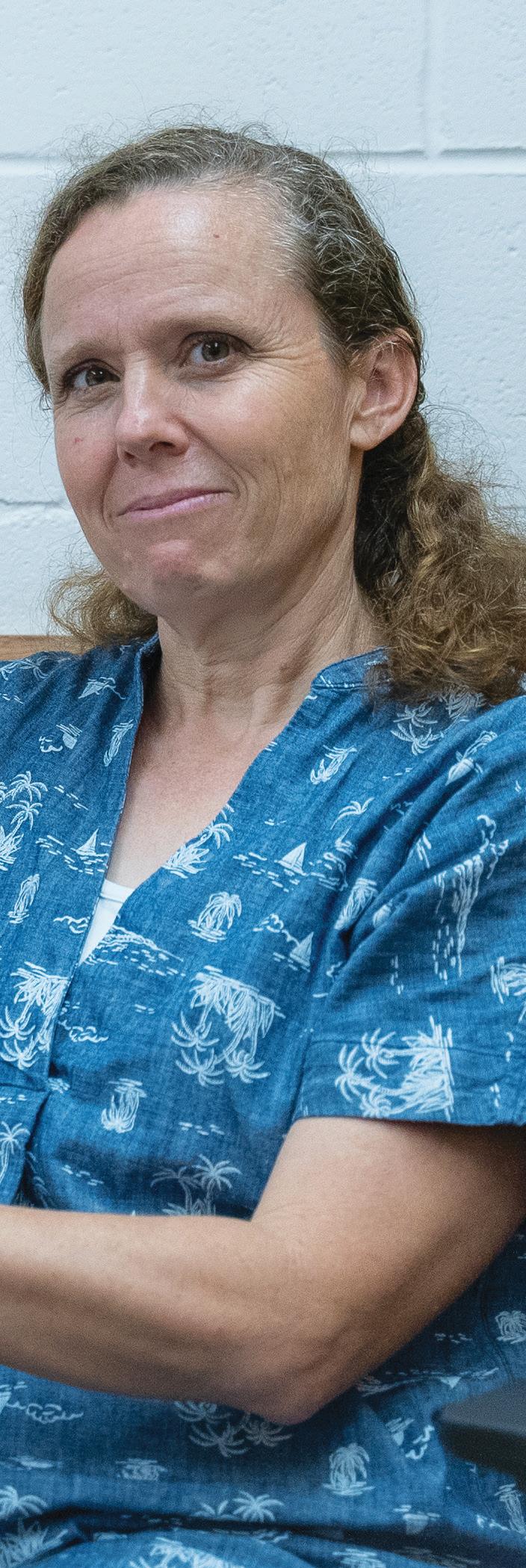

Strain said, “[The students] should be able to have a safe space to talk about it, and to bring it up, and have it respected, and listened to and addressed.
“I don’t know how we can help our youth and build faith if we’re not doing that.” •
Rebekah Strain reading about important women figures in the restoration.
CONDUCTING LIFE THROUGH MUSIC


BYUH alumnus shares his musical journey and passion of conducting and piano performance
 BY ABIGAIL HARPER
BY ABIGAIL HARPER
Lawrence Laureano’s love of singing and teaching music has helped him and others find emotional support through the demands of life, he said. “I’ve had a profound understanding since I was a little boy that we are all connected. And that’s the reason why I love choral music. We are connected in choir.”
Laureano is an alumnus from BYU–Hawaii who graduated in April 2020 with a bachelor’s degree in vocal performance and piano, and said he taught himself to conduct music from YouTube videos of Dr. Craig Jessop, the former director of the Mormon Tabernacle Choir. Laureano said he will finish studying directly under Jessop in his master’s program for choral conducting at Utah State University at the end of the Winter 2023 Semester.
Originally from Davao City, Philippines, Laureano said life was challenging for his family when he was growing up. “We weren’t abundant when it came to food or money,” he explained. Laureano said he didn’t have much guidance from his parents as a teenager, so music became his safe haven.
“I would go to church and play the piano,” he said, “because there was so much pain, hatred and violence where I grew up. Music became my way to escape.” Laureano said music was his companion because it was the only thing he felt understood by. He said he also found solitude in nature. Laureano explained being in the wild would help him connect with his deeper self, the part of him that was longing for love, connection and purpose.
Laureano’s first introduction to Jessop was when he was a child in Primary, he said. When he was young, Laureano said he would go to conferences and watch Jessop conducting the Tabernacle Choir on screen. “That was a spark of creativity in me,” Laureano said of Jessop’s art form deeply resonating with him. “I have been a keen observer of his art since I was a little boy growing up in the southern part of the Philippines.”
By the age of 14, Laureano said he taught himself enough to direct his ward’s choir. He said. “It was with that group that I was really able to hone my skills in conducting in preparation for my BYUH life.”
Learning and singing at BYUH
Jennifer Duerden, an adjunct professor in the Faculty of Culture, Language & Performing Arts and close friend and mentor to Laureano, said she met him the day he arrived at BYUH. Duerden said she remembers him saying he was excited to “have a real piano teacher.” It wasn’t long afterwards Laureano was assigned to Duerden as her piano student, she said.
Laureano said meeting Duerden completely changed the trajectory of his life. “[The Duerdens] have been like parents to me,” he explained.
Duerden said she watched Laureano try different avenues to figure out what he wanted to do in his first few years of school. “At one time he was thinking about doing more acting and being a Broadway singer,
Portraits of Laureano and Laureano with Jessop. Photos provided by Lawerence Laureano. Graphics by: Marlee Palmer, Sugrmaa Bataa (Kendra).
and I think he could do that. But he gravitated towards and had a true love for choir,” she said. Duerden noted Laureano has many talents outside of the music world as well. She said when school got hard, he would sometimes joke with her, “I just want to start my own Filipino bakery.”
Even though it was hard, Laureano said he had positive experiences at BYUH. His junior year, he said he was asked to teach the university choral class. He was considered part of the faculty, which he said was an interesting twist to his undergrad experience. “I would attend faculty meetings and the next day go to my biology class,” he said with a laugh.

Duerden said when BYUH asked who she recommended to be the new university choral conductor, Laureano was her top pick. “I’ve worked with so many conductors, and [Laureano] just has this magic of getting exactly the right sound out of people,” Duerden said. There were logistical challenges with hiring a student to be a teacher, she acknowledged, but they figured out a way to make it work because of Laureano’s talents.
Seeing Laureano in the contexts of both student and teacher gave Duerden unique insights, she said. “He’s like a sponge,” Duerden explained. “I would see him in vocal master classes and the teacher would say, ‘Do this technique,’ and the very next day I would see him teaching it to the choir.”
When Laureano received a calling to be his ward’s choir director, Duerden said she agreed to be his pianist. “It wasn’t just an average ward choir,” Duerden recalled. She said she told Laureano if he ever got a different church calling, he should start his own choir. A year later Laureano moved wards and organized Our Voice, a choir with some of his fellow students.
Brandon Sorilla, a senior from Iloilo City, Philippines, was an original member of Our Voice. Majoring in vocal performance, Sorilla said Laureano invited him to join the choir without auditioning. “That kind of made me feel a little special and thankful that he trusts me and my abilities as a singer,” Sorilla said.
Sorilla described Laureano’s conducting as very passionate and strict. He said he joined Our Voice because Laureano was an amazing conductor and good friend of his.
Supporting others through music
Laureano said although students are often taught one way of singing in the world of choral music, there are a lot of different ways of doing it. “Music has this powerful energy that just brings you to a higher dimension when it is done the right way,” said Laureano.
He said he believes choral music can be a platform for him to encourage an inclusive, safe space through diversity. Discussing Laureano’s work, Duerden said, “It’s not a different way of doing things, it’s almost like a whole new way of doing things.”
During his time at BYUH, Laureano said he struggled with anxiety and depression. He said, “I didn’t know about emotions growing up.” He explained his parents weren’t able to help him understand or have tools to work through thoughts and feelings.

“When I went to BYUH, a lot of different emotions surged in my body with learning a whole new culture and language,” Laureano explained. Despite the new environment, he said it taught him to connect with his deeper self. “A lot of students are so identified with their pain because they think that’s who they are. They identify with the roles they play. But the true form of who I am is not my emotions, but that I am the observer of my emotions.”
Laureano said he was not alone in his difficulties. During his time as a teacher at BYUH, he had students write to him about their struggles, he shared. Laureano said nature taught him to be still and present, which allowed him to help his students. “After a concert or rehearsal, they would email me and thank me for that experience, that energy,” he said.
Sharing his own compositions
After he graduated from BYUH, Duerden said Laureano lived with them for a time. “We loved having him in our house,” she said and explained how Laureano began seriously composing in their home. Laureano likely started composing out of frustration, Duerden said, because he couldn’t meet with his choir in-person due to COVID-19. Duerden said she thought the final straw was when Laureano’s car was broken into and his wallet was stolen. She said he started composing the next day, and he couldn’t stop once he started.
Sorilla said his favorite part about being part of Our Voice was being able to sing Laureano’s original songs. It was a blessing, he said, to know the backstory of each of the songs.
Many of Laureano’s pieces have been showcased at the USU Veterans Day Concert and will be at a USU Christmas Concert, where Laureano attends graduate school. Last Christmas, Duerden said one of Laureano’s pieces, “Major Filled with Love,” was performed in Utah at a concert she was able to attend. “It was a really amazing concert, but honestly the best part was his piece,” she said.
The path to graduate school
Laureano explained that graduate school wasn’t always part of his plans. He said he was invited to visit a friend in Logan, Utah, where he had to opportunity to tour USU. He said the more he explored the campus, the more he felt like he should attend school there. “I had a distinct feeling that I had been there before,” he said, “but at the time, they were not offering any choral conducting degrees.”
Laureano said he then returned to BYUH to finish his bachelor’s and forgot about USU for a while. When he was in his last semester at BYUH, Laureano said he was terrified about the next phase of his life. He said Duerden told him, “Don’t give up on your dreams. Pursue your master’s degree.” Duerden, remembering that experience, said, “I just felt like he was grad school material. He’s such a stellar student, and if anybody should go to grad school, he should.”
He took this advice, Laureano said, and started applying to master’s programs. He shared he remembered how he felt about USU’s campus and looked up its website. When Laureano saw Jessop, his childhood inspiration, had just created a new choral conducting master’s program at USU, he said he thought, “I think this is for me.” In February 2021, Laureano said he found out he was one of the first graduate students admitted to the program. He said it was his dream come true.


Laureano said he’s finishing his master’s degree and is planning on getting a doctorate because he believes in service through music. He said his dream is to return to the Philippines and build a music school for young children, like he once was. •
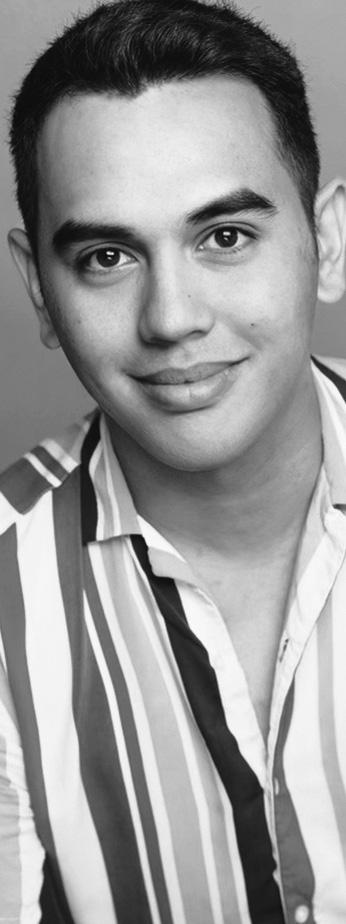 Portraits of Laureano and Laureano with Jessop. Photos provided by Lawerence Laureano. Graphics by: Marlee Palmer, Sugrmaa Bataa (Kendra).
Portraits of Laureano and Laureano with Jessop. Photos provided by Lawerence Laureano. Graphics by: Marlee Palmer, Sugrmaa Bataa (Kendra).
UNSPOKEN WORDS OF A MOTHER

 BY JIEUN SHIN
BY JIEUN SHIN
Ellisa Edeyaoch shared her struggles with pain, fatigue, illness, social isolation and mental health during her pregnancy were all worth it when she saw her newborn son, Elijah, for the first time. “No matter how hard it was for me and how unprepared I was, at that moment, in that split second, I remembered all of the good times I had while I was pregnant.”
Edeyaoch, a senior studying Pacific Island Studies from Micronesia, said she wished she had known more about the trials of being pregnant before her own experience after giving birth to Elijah in September 2022.
“I really wish some people were honest about the issues that pregnant women face,” said Edeyaoch. She shared the first three months were the hardest months throughout her pregnancy, which made her decide to take a break from school and work.
Although it was a lonely process, she said the small moments of joy are the ones she will remember forever. “People need to take time to understand that pregnancy is a beautiful experience, not just scary.”
Joyous news and sleepless nights
Edeyaoch said she was told she potentially couldn’t have children because of a previously diagnosed medical condition. In the Winter 2022 Semester, she said she went to BYU–Hawaii’s Health Center to get tested for COVID-19. While there, she discovered her symptoms of fatigue and nausea were actually from her pregnancy, Edeyaoch said. She explained she was overwhelmed with joy.
“I remember crying because I was so happy. But the joy was followed by a lot of sleepless nights,” she said. She explained she woke up while sleeping and threw up regularly. She said she wished she could say it ended after her first trimester, but it continued throughout her pregnancy.
“The first trimester was one of the hardest months with school and with my mental health. … I was kind of overwhelmed,” she said. While working at the Joseph F. Smith Library, she said her employers were very understanding of her health condition, allowing her to have days off. However, she said she felt guilty for taking so many days off, especially from school.
Edeyaoch’s husband and Elijah’s father, Kaytano Edeyaoch, a BYUH alumnus who studied communications and is currently working at the Banyan Dining Hall full-time, said, “I am sure about 80 percent of our co-workers had no idea what was going on.”
He shared he had several pregnant classmates and saw them missing classes, but he said he did not know what they were going through until he saw his wife going through her pregnancy. She had days when she couldn’t even get out of bed, said Kaytano Edeyaoch.
Asking for help and a sense of embarrassment
Ellisa Edeyaoch said she felt lonely during her pregnancy but thought it was just a pregnancy hormone. Since the culture where she grew up does not consider mental health to be a real issue, asking for help was embarrassing to her, said Edeyaoch.
“I remember feeling very alone, but at the same time, I was too shy to reach out for help,” she added. Because she felt ashamed to have those feelings, she said she kept them to herself until she noticed it was affecting her schooling and work.
When diagnosed with severe depression, Edyaoch said she remembered thinking, “Oh, this is bad. I really need to get some help.”
After she reached out to BYUH’s Counseling Services, she said the counselor helped her work through her mental health issues during her first trimester to be mentally and emotionally prepared for the following months.
After taking a break from school, Edeyaoch explained she could not have access to Counseling Services. “I was trying to remember everything that we talked about during our exercise so that I would be able to withstand all of the emotions,” she said.
Unexpected challenges
During her second trimester, Edeyaoch was diagnosed with COVID-19. On top of that, she said she also had two wisdom teeth extracted in one day because some of her teeth had started to shatter. She said her dentist and her doctor told her growing a human requires a lot of vitamins, which leads to weaker teeth and gums. “I was so shocked because I was taking really good care of my teeth. … I wish someone told me that,” said Edeyaoch.
In her third trimester, Edeyaoch said she started experiencing Braxton Hicks contractions, which is when the body experiences contractions in preparation for labor. Her body started to have painful contractions at random times during the day and night, she said. “It was just a lot.”
Additionally, she said she gained about 50 pounds during the last trimester. “I was so confused why I had gained that much weight, but after I gave birth, I lost 40 pounds in a week. So it was really all the baby and the fluids inside.”
Ellisa Edeyoach with her son Elijah, holding her hand. Photos by Pristine Shek. Graphics by Akira Nagahama.
FALL 2022 ISSUE 2 • 55
BYUH student who struggled physically and mentally throughout her pregnancy says she wishes people would be more honest about issues pregnant women face






56 KE ALAKA‘I 2022
Left: Close-ups up Elijah in his parents arms.
Right: Ellisa and Kaytano Edyaoch with their son Elijah.
Losing connections
“[During pregnancy,] you kind of become a hermit, [and] no one tells you that you lose connections,” said Edeyaoch. She shared she felt she lost many friends from constantly being sick, not wanting to throw up in front of people, and struggling with low self-esteem as her appearance started to change. “You become shy, and you do not become as close to your friends as you were before.”
“I think it is so important [people] check up on their pregnant friends, no matter how much they say, ‘Oh no, it is okay.’ You don’t need to come over and visit them in person, just call them or leave them a voice message. It helps so much.”
After discontinuing schooling, Edeyaoch said she also had to stop working on campus, causing her husband to work two jobs. One night as her husband worked late, she said she remembers being alone at home, thinking, “I should be happy. I am growing a human … creating this miracle.
“Why do I feel so alone? Why do I hate myself? Why do I think that I’m ugly? Why do I think I am so bad? Why am I having all these negative thoughts? And why can’t I just be happy? Why can’t I just be grateful for all these things?”
Then, she said her sister called just wanting to talk about random things. At that moment, Edeyaoch recounted with tears in her eyes, she thought, “I needed this. I just needed someone to check up on me.”
Kaytano Edeyaoch said, “Social issues are a huge factor.” He said he thinks people aren’t educated or aware of the struggle of being pregnant.
Beautiful moments following the struggles
Despite the pain, fear, and loneliness she experienced throughout her pregnancy, Ellisa Edeyaoch said she had a flashback of her good memories while pregnant with Elijah as she gave birth and saw him for the first time. After five hours of labor, she said it was a confusing moment for her.

She said she thought about, “The first time I felt a baby kick. The first time I found out that I was pregnant or the first time we saw his ultrasound. … All these memories came to mind … it was such a beautiful moment.” Edeyaoch recalled thinking, “‘Oh, I would do this again just to have that experience again.’”
During her first week after having Elijah, she said she felt overwhelmed and exhausted while nursing him one night. While doubting whether she could keep going, she said she saw him looking at her, grabbing her finger with his tiny hands and smiling. She said that moment helped her overcome her challenges and feel happiness and gratitude. “I remember saying a little prayer by heart to Heavenly Father … for allowing me to be part of this creation process and to be part of this little human’s life,” said Edeyaoch.
Adapting to life changes
“Life after having a baby is so different,” said Edeyaoch. She said both her and husband get stressed and overwhelmed when they don’t know how to calm Elijah, especially when he’s crying at 2 a.m.
She emphasized it is important to take good care of yourself, especially for new mothers, because they are taking care of another person. “And it’s so funny because I can barely take care of myself,” she said. She shared she reserves time for self-care, mostly when Elijah is sleeping. “I like to take naps, crochet, read Webtoons, paint, or eat [her] favorite snacks to recharge.”
She said she has been grateful she is becoming more responsible, less lazy and more productive with her time.
While it is hard to find joy and easy to start beating herself up in challenging situations, Edeyaoch said new mothers need to accept they are going through changes. “You will never be the same mentally, [your whole life, your social circle] will never be the same, but you have to accept that,” she said. •
FALL 2022 ISSUE 2 • 57
 Left: Portrait of dance instructor Nina Foster. Right: Nina Foster doing acrobatic skills with her son and other students.
Photos by Marwin Jay Villegas. Graphic by Marlee Palmer and Sugarmaa Bataa (Kendra)
Left: Portrait of dance instructor Nina Foster. Right: Nina Foster doing acrobatic skills with her son and other students.
Photos by Marwin Jay Villegas. Graphic by Marlee Palmer and Sugarmaa Bataa (Kendra)
FAMILY OVER FAME AND FORTUNE
BYU–Hawaii dance teacher and alumni gave up a life of fame and fortune for the eternal joy that comes from spreading the light of Christ and mentoring students
BY LEXI LANGLEY

Born and raised in Central Asia (East Turkistan), Nina Foster said she left her family to attend school in Beijing, China, when she was just 10 years old. According to Foster, 10 students from all around the world were selected each year to attend the prestigious People’s Liberation Army Academy of Art.
According to Foster, Peng Liyuan, the spouse of the President of China, Xi Jinping, also attended this school. It was at this university that Foster said her professional dance career began. At 16 years old, she graduated with a bachelor’s degree in dance and began her journey performing all around the world.
Despite “living the dream as a star,” Foster explained leaving home at 10 years old caused her to deeply miss her family. “I would tell people that I wanted to be with someone forever, and they would laugh at me,” said Foster. “I had everything. Fame, money, I was on TV. I could get anything I wanted, but there was always something missing.”
The missing link
Two years after Foster began performing around the globe, she said the company she was part of at the time traveled to Laie, Hawaii, just after New York. Before traveling to BYU-Hawaii, she knew nothing about the Church. “It felt like a sacred place,” said Foster. She stayed in Hale 5 and performed at the Cannon Activities Center. Following her performance, students and teachers begged her to come teach at BYUH and enroll as a student. However, Foster still moved back to China.
A year later, Foster said she was working at Window of the World, a theme park located in Shenzhen, China, when she ran into a group of BYUH students who remembered her from the CAC performance. Foster ended up being the group’s guide during their visit at Window of the World.
Since she was around the same age as the students, Foster said she became good friends with them. “Some students would stay in my room until 4 or 5 in the morning, for a whole week, talking to me about the gospel. President Shumway’s daughter was one of them,” said Foster.
She shared when they talked about eternal families, it finally hit her. The thing she was
missing all along was the knowledge of eternal families. Foster recalled something was missing as a young, famous and wealthy teenager, and this was it: the gospel.
“These people don’t think I’m crazy,” thought Foster. After this experience, she decided to return to BYUH, where she attended as both a teacher and student to earn a business degree.
A shift in direction
After moving to Laie, Foster felt a noticeable difference from the life she was living before. She said, “Something felt like home at BYUH. I was always homesick, but here, I felt closer to my family.”
President Eric and Sister Carolyn Shumway became her “bonus mom and dad,” Foster explained. She also experienced unconditional love from the Shumways as well as many other peers, mentors and friends. This was something Foster said she searched to have for so many years ago and finally found it at BYUH.
Although she had continued to learn about the gospel, Foster said she was convinced she would never be baptized. Foster’s Muslim background and deep love for her parents kept her from doing so. “It would be disrespectful to my parents,” said Foster. For a while, she thought everyone was being so kind and loving just so she would be baptized.
Five years later, Foster met her husband, John Foster, here in Laie. As they talked, they learned they had been in Beijing and Shenzhen at the same time but never met. Foster explained that prior to moving to Laie, John Foster spun a globe and pointed to a random place with the intention of spontaneously moving there; his finger landed on Hawaii.
At the time, John Foster was not a member. However, Foster said her friends and “bonus” family members encouraged her to date him. “One person said, ‘He’s a good one.
Marry him,’” said Foster. This made Foster realize the pure intentions of those around her, she said. Even though he was not a member, they still felt John was perfect for her, she explained. “True disciples don’t try to get credit or push others. They just love. And they truly loved me. It wasn’t about baptizing me,” said Foster.
Trusting those around her, Foster said she began dating John. Months into their relationship, John told Foster they should get baptized, she said. In 2005, John and Nina Foster were baptized by President Shumway and married and sealed in the Laie Temple.
“Suddenly everything made more sense. None of this was a coincidence,” said Foster. Between performing at the CAC, running into and leading a group of BYUH students in China, and meeting John Foster when she did, Foster knew God had a plan for her all along.

Foster said many people would tell her she had fame, money, a career and gave everything up. She would reply, “I have everything now. I didn’t have anything without Heavenly Father or eternal families. Nothing else matters. This is true happiness.”
Sharing her gift to pay it forward
Foster said she asked President Shumway how she could ever repay him for everything he had done for her. Foster shared, “He replied, ‘If you know how much we love you, you wouldn’t ask that question.’” She continued, “... And that’s why I want to give back to my students.”
Foster began teaching in 2000 and said she has never had a bad semester. “Every single one has been beautiful,” said Foster. “Family is everything to me. You appreciate your family when you leave it,” shared Foster. She explained how family is all around at BYUH.
When she sees students struggling, missing their families, feeling confused about their future, as most college students do, she knows how it feels and wants to help. “I want students to have a rich, happy life full of good memories at BYUH. This feels like my mission, my calling,” said Foster.
Jay Phung, a sophomore from Kaaawa majoring in music and entrepreneurship, said he was a student of Foster’s when he was a freshman. Phung said he was presented with the opportunity to pursue his dream career
60 KE ALAKA‘I 2022
Nina Foster models a new dance choreography with the help of her son.
in music, which would have put his mission on hold.
At each dance concert, Foster would announce and recognize the students who were either leaving on a mission or graduating. Phung had received his call to Thailand, but when this opportunity came up, he was unsure whether or not he would go. Phung told Nina that he may be reconsidering going at this time, and she probably should not announce him.
Later, Phung shared, Foster talked with him about the importance of serving missions, which ultimately led him to pray, counsel with his parents and felt strongly about serving his mission right then.
Since the pandemic began months after he left on his mission, he was reassigned to San Diego, where he got to use music on social media to share the gospel. Phung said Foster emailed him on his mission, and he expressed his excitement to be back in her class now. “She has really made an impact in my life and she is just a bright light,” said Phung.
Guinevere Abello, an alumni of BYUH and former student of Foster’s, explained how the classroom environment created by Foster was a safe and spiritual place. “The love and the spirit you would feel in the classroom was super uplifting,” said Abello. She shared how special it was to come together with students from all different backgrounds and levels of dance.
“She doesn’t just love you because you’re a dance student. She loves and cares for you in all aspects of your life,” said Abello. According to Abello, Foster was one person who she could go to with anything and feel nothing but love.
Growing through global travel
Even though the professional world of dance can be amazing, it is nothing compared to teaching, Foster said. “I treasure this so much more because I feel this is eternal. It could impact someone for life.”

Foster still travels around the world with her daughter for educational dance experiences. The professional world helps Foster grow as a dance mentor so she can still teach her students effectively, but she said she believes dance is so much more than a self-promoting activity.
This past summer Foster said attended New York, London and Italy. She also shared every couple of years, she continues to renew her choreography certification in Paris so her students receive the best training.
Joy in the studio
Some of Foster’s favorite parts of being the dance teacher at BYUH is seeing confidence grow within students, watching students laugh, building relationships, serving others and finding joy. Foster explained dance is a gift, but it’s a greater gift to share it with others, bless people and create families wherever you are.
Unlike pursuing fame for oneself, the love people share with others is everlasting, according to Foster. She explained there are always people around others who are struggling. Serving and loving others is what brings people everlasting joy, said Foster. According to Foster, dance means, “to spread the pure and unconditional love of Heavenly Father.” She added, “Life is beautiful. No matter what challenges we face in life, with Heavenly Father and Jesus Christ we can overcome anything.” •
Nina Foster showcases acrobatic skills in her class with the help of her son.
EMPOWERED THROUGH TRIALS
 Photos by Kristen Staker. Graphics by Yichi Lu. Collage of Delphia Lloyd.
Photos by Kristen Staker. Graphics by Yichi Lu. Collage of Delphia Lloyd.
A BYUH graduate with a ‘major depressive disorder’ said there is power in looking back and seeing personal growth
BY XYRON LEVI CORPUZ
Delphia Mihi Lloyd, who
management, said, “Thinking about my story, I often forget to look back and see who I’ve been and where I’ve come from. And sometimes, that’s just because I get too caught up in the moment, or sometimes that’s because I don’t want to think about it, because I might feel embarrassed or ashamed or scared,” she said.
Lloyd from Caldwell, Idaho, said she has a condition called major depressive disorder, which is a chemical imbalance in the brain. “[It] causes you to have the inability to feel joy, or basically to enjoy life, even when you’re surrounded by the things and the people you love,” she explained.
“There’s power in looking at your past and seeing how much you’ve grown and where you’re at because I realized now … that I’ve come so far, and I’ve become way stronger,” she said.
“And I owe that to the Delphia before, to the Delphia who struggled and who wanted to give up. I owe who I am now to her; to the one sometimes I’m embarrassed about, and I’m grateful for her,” she continued, with tears in her eyes.
When asked what she does to cope with her mental struggles, Llyod said what helped her was to have both hope and endurance. “When I’m going through my depressive episodes, I’ll just keep holding on to things that

I have founded myself in [such as] the gospel, my faith, my family and serving others,” she shared.
Llyod said her message to others who are also experiencing mental health conditions is to seek help. She commented, “The No. 1 and the most foundational thing I would tell people is don’t be afraid to get help. Please get help and don’t be ashamed.”
She added, “Your depression or whatever other illness you have or whatever you can consider to be a trial or witness in your life can actually be the biggest strength in your life and can become something that makes you more powerful than you realize. But that’s only if you take the time to get help and to really love yourself for who you are and where you’re at.”
FALL 2022 ISSUE 2 • 63
graduated in the Winter 2022 Semester with a degree in hospitality and tourism
“There’s power in looking at your past and seeing how much you’ve grown and where you’re at because I realized now … that I’ve come so far, and I’ve become way stronger.”
Portrait of Delphia LLoyd who wants to change the stigmas around mental health issues.
A SOURCE OF INSPIRATION
Inspired by his parents’ hard work and dedication, BYUH junior prepares for a career at the International Court of Justice
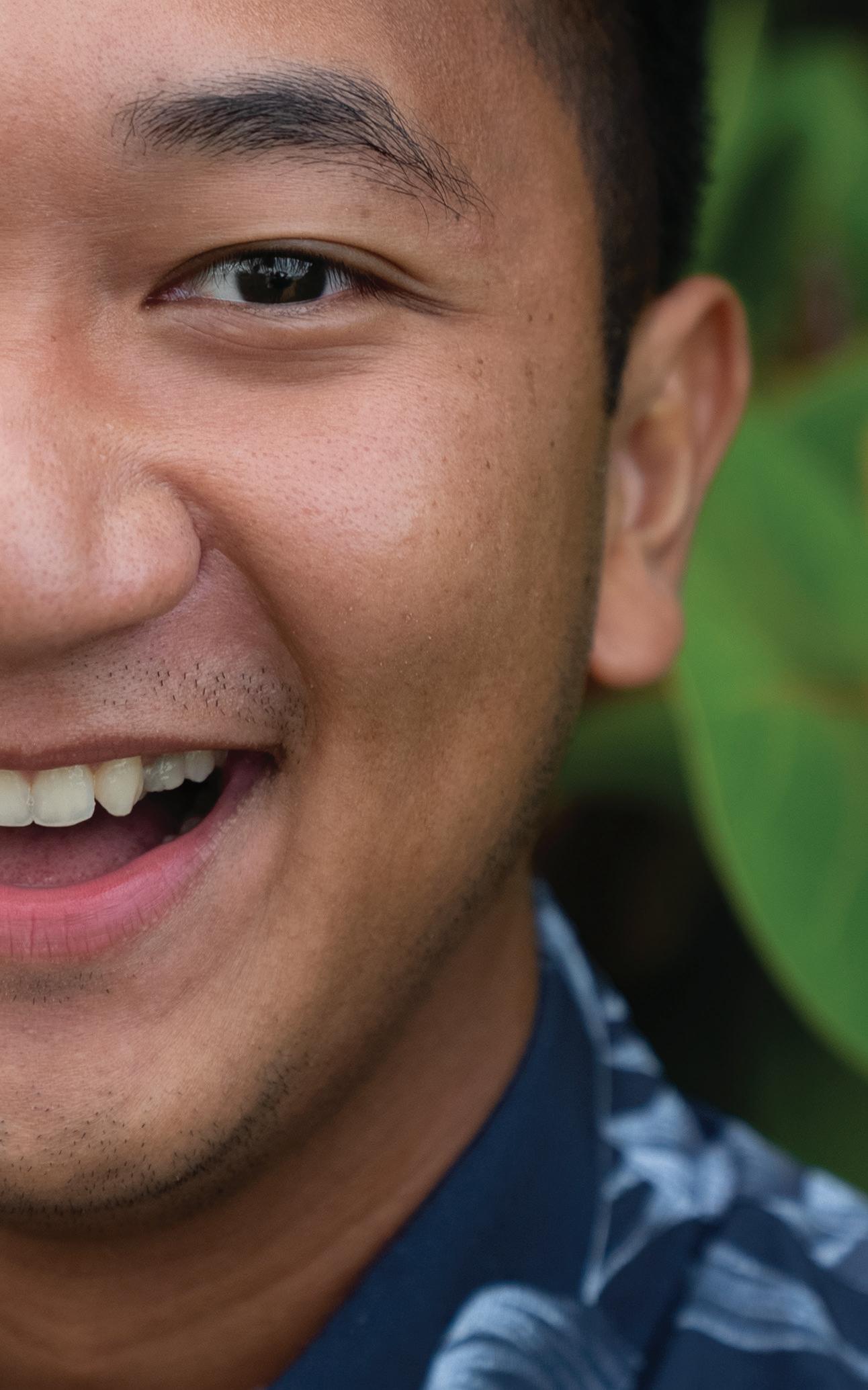
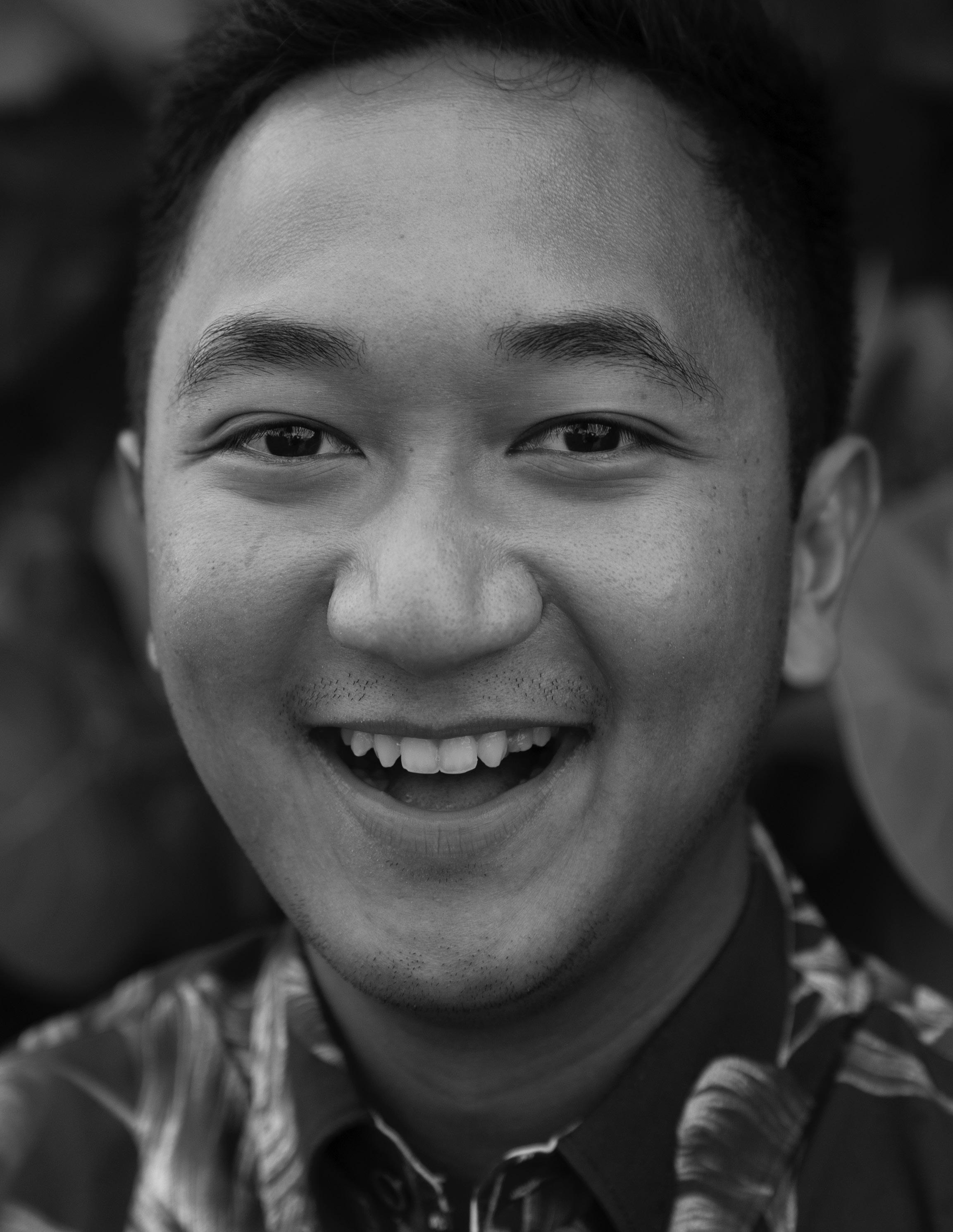 BY LEXI LANGLEY
Portrait of John Lidang.
Photos by Kristen Staker.
Graphics by: Marlee Palmer, Sugrmaa Bataa (Kendra)
BY LEXI LANGLEY
Portrait of John Lidang.
Photos by Kristen Staker.
Graphics by: Marlee Palmer, Sugrmaa Bataa (Kendra)
When John Lidang was 12 years old, he said his family moved to the United States from the Philippines. To commemorate this event, Lidang said his family of four shared one hamburger from McDonald’s. This became a tradition for their family every year, he shared. Even on his mission, Lidang said he ate a fourth of a hamburger on the anniversary. Although he is in Hawaii, away from his family, Lidang said he still celebrated their 12th anniversary of moving to the United States on Sept. 25.
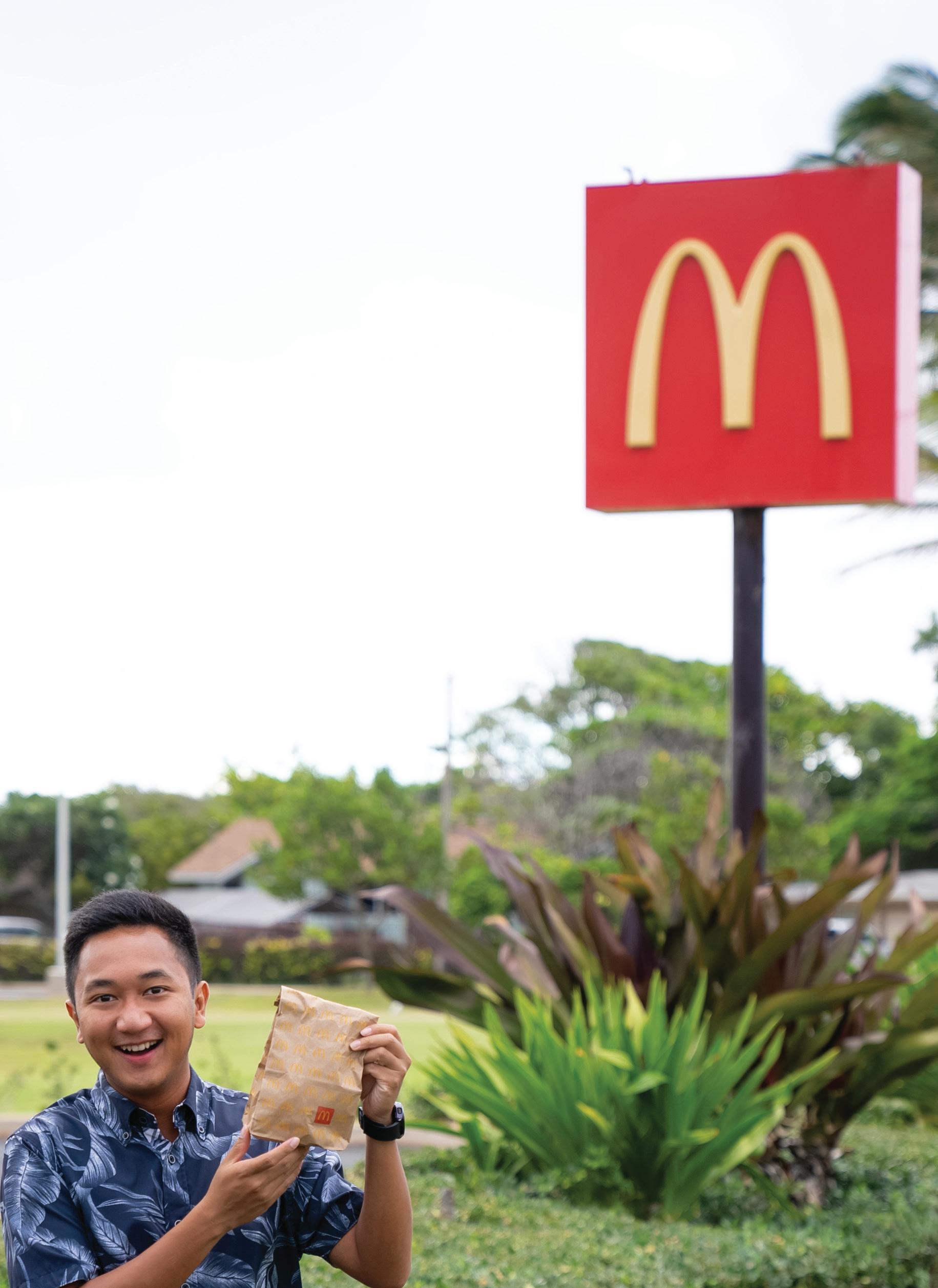
As a youth, Lidang said he watched and admired his parents’ hard work and commitment to conquer difficult trials they faced. This inspired Lidang to put his best foot forward in every area of his life, which gave him the confidence to do whatever he put his mind to, he explained. Despite the struggles that came with moving to the United States, Lidang said he lives his life with the mindset he might not be able to change his circumstances, but he can certainly change what he accomplishes.
Today, the junior political science major from Las Vegas, Nevada, said he works as a political science peer mentor to help other students in the political science program, plans to attend law school and work as a judge in the International Court of Justice. He said he also is writing and sharing the stories of students all around the world. “While we are at BYU–Hawaii, we have resources, stories, and so much diversity. It’s an untapped potential, and I want to be the platform to share it with others,” said Lidang.
Accomplishing big
One of Lidang’s many accomplishments, he said, has been learning seven languages. With his first language being Tagalog, he also fluently speaks Ilokano, English, French, German, Spanish and American Sign Language. In high school, Lidang said he barely spoke English while those around him were so skilled. Still, he said this did not stop him from putting his best foot forward in all of his endeavors.
In high school, Lidang said he ran for class presidencies that led to him being selected to represent his school for Nevada Boys State. According to Lidang, Boys State is a type of simulation where high school students all over the state come together for a week to engage in debating and considering bills, said Lidang.
 Lidang outside of the Laie McDonalds, holding the hamburger in a to go bag.
Photo by: Kristen Staker.
Lidang outside of the Laie McDonalds, holding the hamburger in a to go bag.
Photo by: Kristen Staker.


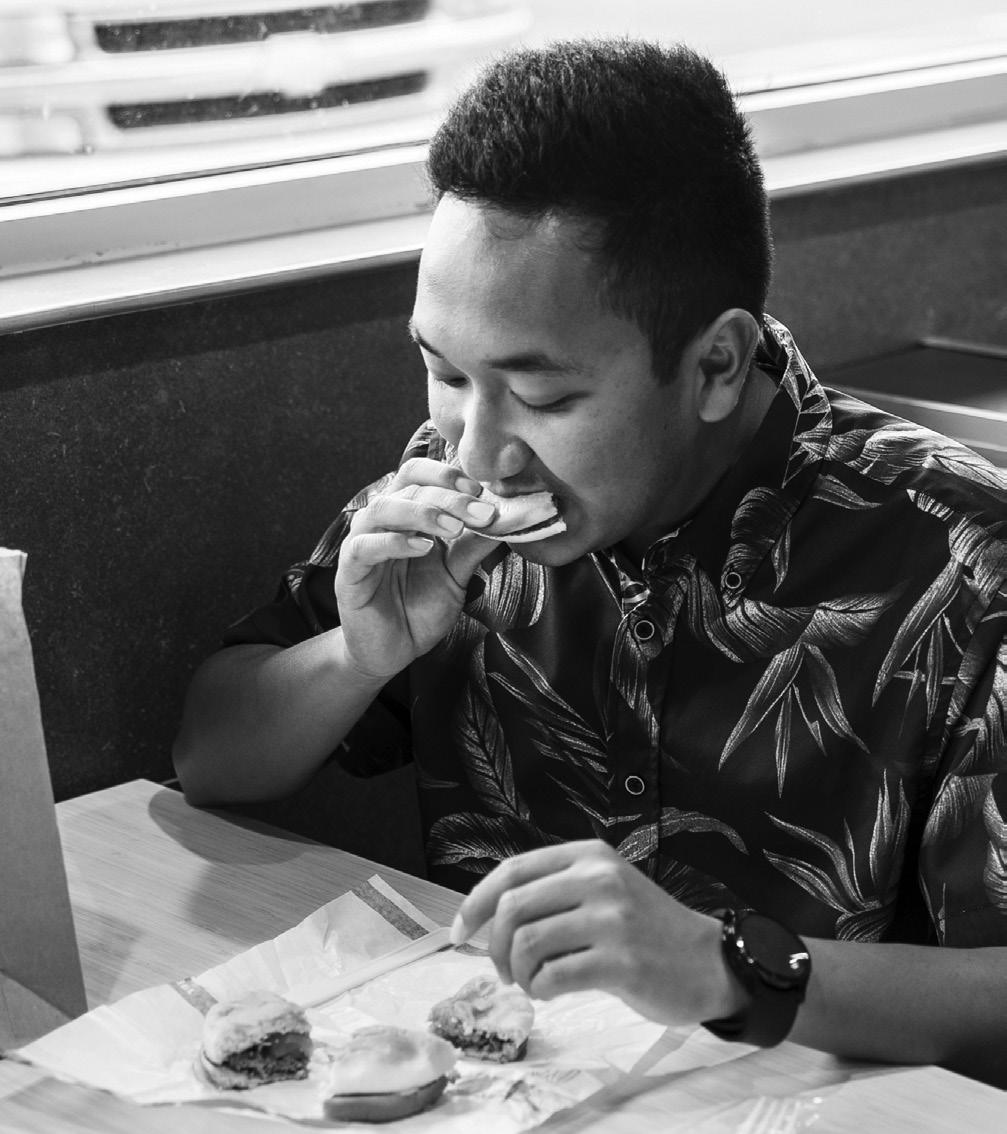
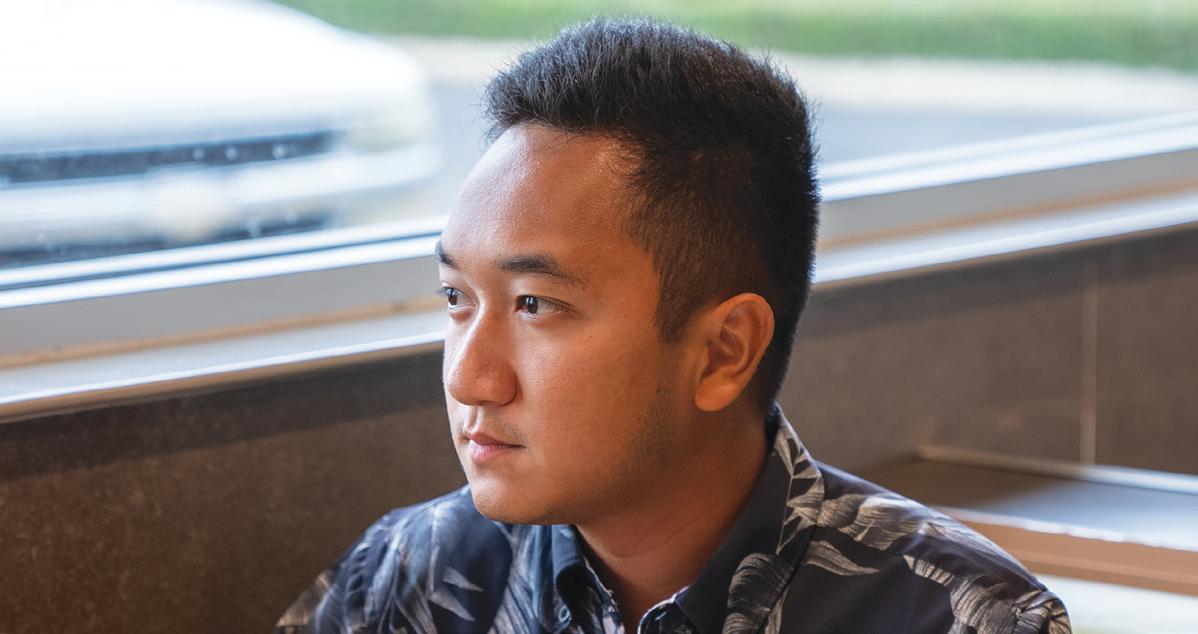 Lidang inside of the Laie McDonald’s cutting a hamburger into fours. In honor of his families traditon to do so.
Lidang inside of the Laie McDonald’s cutting a hamburger into fours. In honor of his families traditon to do so.
While he was at the state capital for a week, Lidang was elected to be the Speaker of the House. Although English was more difficult for him than it was for his native English speaking peers, Lidang said he worked hard and was successful.
When Lidang was asked by a fellow peer why he should be the speaker, he recalled what his dad once said regarding his successful business back in the Philippines. Lidang replied to the question, “Because I can work.” That phrase has stuck with him, and Lidang said he won by majority vote. He said his “parents have been the source of [his] inspiration.”
Inspiring others
Lidang said this experience inspired other students to overcome their own roadblocks with confidence and also put their best foot forward. While inspiring others, he said he also learned English proficiency is not a measurement of intelligence - it’s just a language. “If I can speak seven of them, I can very well work,” said Lidang.
After this experience, Lidang said he knew he wanted to do something with government and have a platform to help and inspire others. “If I can do it, [others] can too,” he said.
In addition, Lidang served as the company commander in the Junior Reserve Officers’ Training Corps (JROTC), the president of Student Organization for Latinos, the president of the Advanced Placement (AP) society and founded an after-school choir program for students who couldn’t do school choir due to conflicting schedules. Lidang said he lives with an attitude of “you can do whatever you put your mind to.”
Full-circle moment
After returning from his mission in Hawaii, Lidang said he attended BYU-Idaho in the Fall of 2019, and one of his first writing projects was to gather a story about someone. At this time, Lidang said his home ward in Las Vegas had just opened up to refugees from Africa. He said he decided to write his story about a young boy named Shadrack. To complete this story, Lidang said he flew from Idaho to Las Vegas not only to interview Shadrack, but also to attend his court ceremony to finally be sworn in as a citizen of the United States.


Lidang explained for him, this was a fullcircle moment as he had recently celebrated his
milestone of being in the United States for 10 years. “We were finally gaining citizenship and these people are coming into the U.S. just like my family was 10 years prior,” said Lidang. He explained, “This country gave me a lot of opportunities and I want to give back.” He said this was another experience that sparked his desire to work in government, so that others could have the opportunities he had.
Spreading inspiration
In his interview with Shadrack, Lidang said he learned a lot about Shadrack’s experiences, traumas and overall life story. It was after this writing project about
Shadrack, Lidang said he wanted to continue writing stories of people. “We all have our own problems, and while hearing others’ stories doesn’t take them away, it helps you to evaluate your own life and think more about others rather than focusing on yourself,” said Lidang.
Lidang said his desire to serve others and learn their stories grew while he was a trip leader with the non-profit organization Humanitarian Experience that went to Malta this past summer. He said this hit home for him as he and his group worked with refugees. According to Lidang, his life was changed by the opportunity he had in America and he hopes to give others the same.•
John Lidang with one of the fourths of the hamburger.
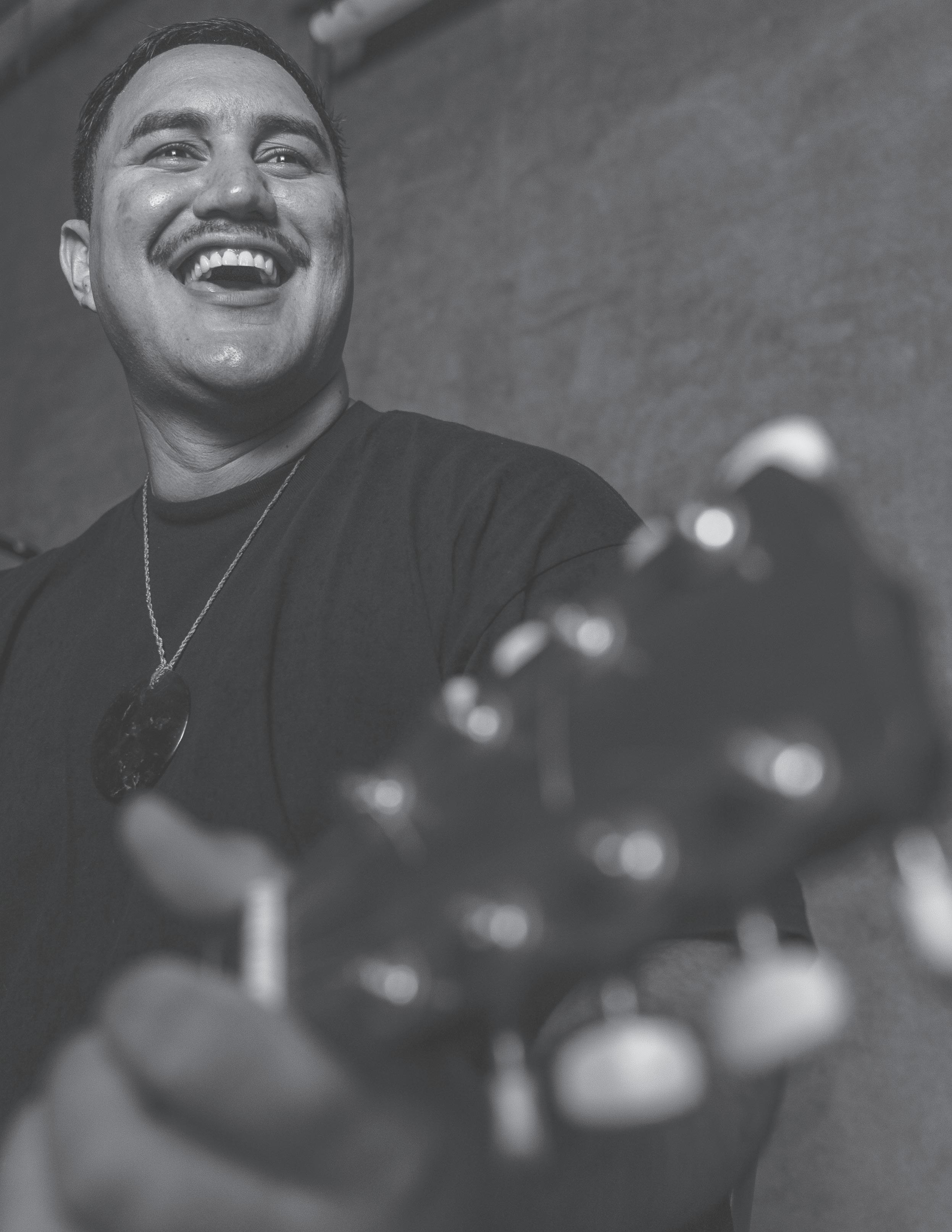
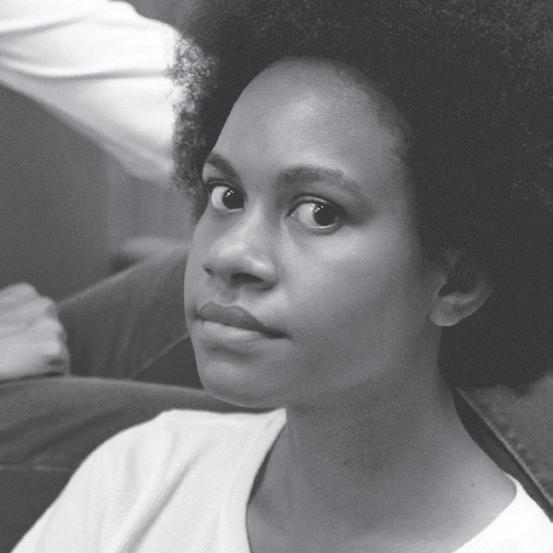
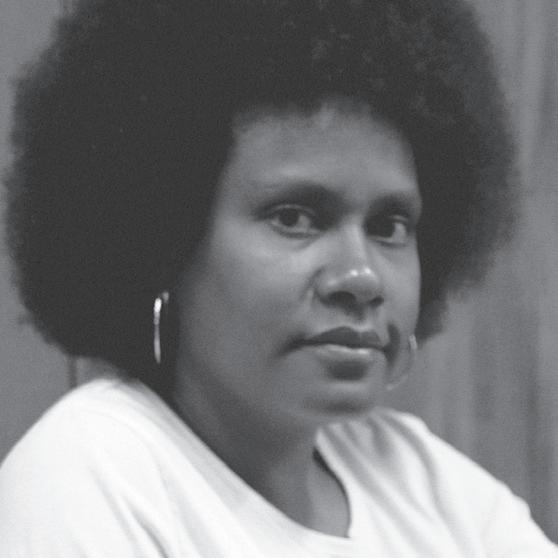
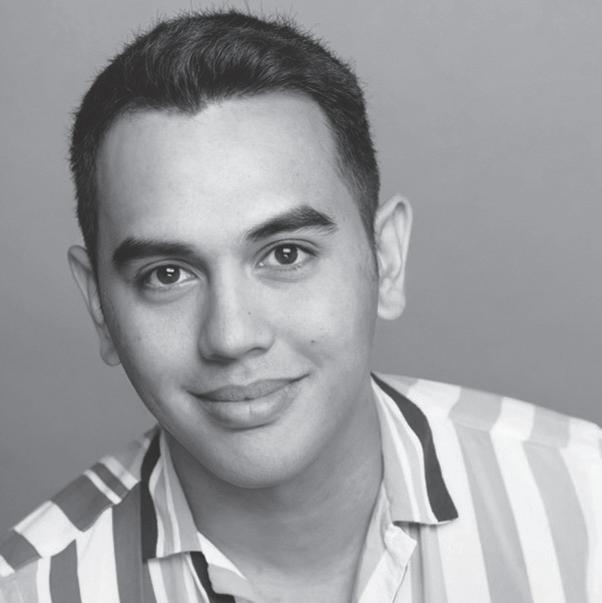
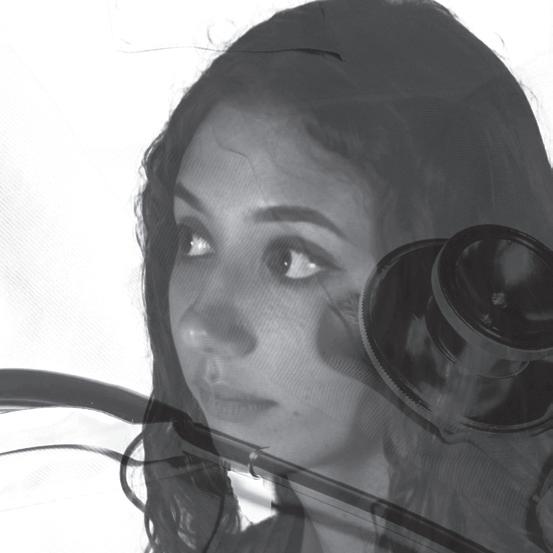
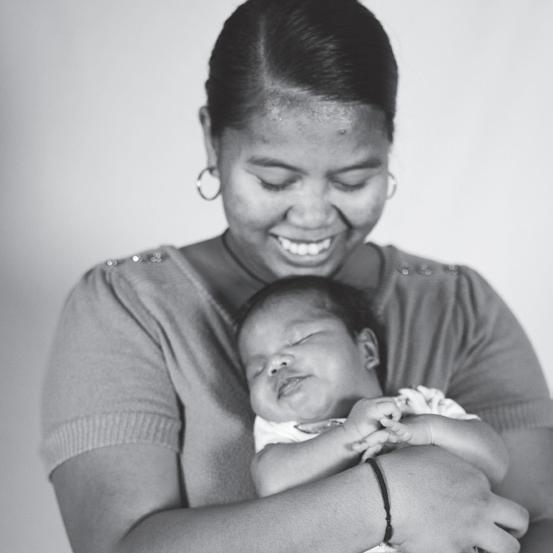
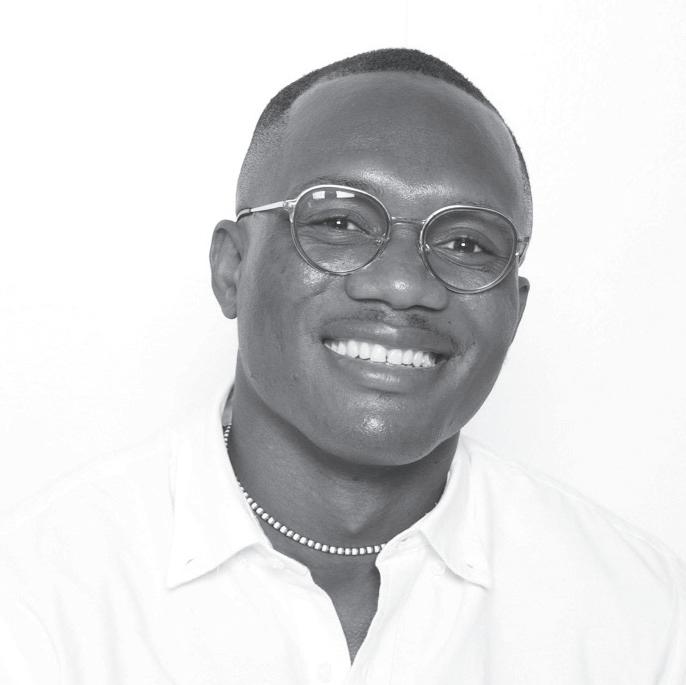

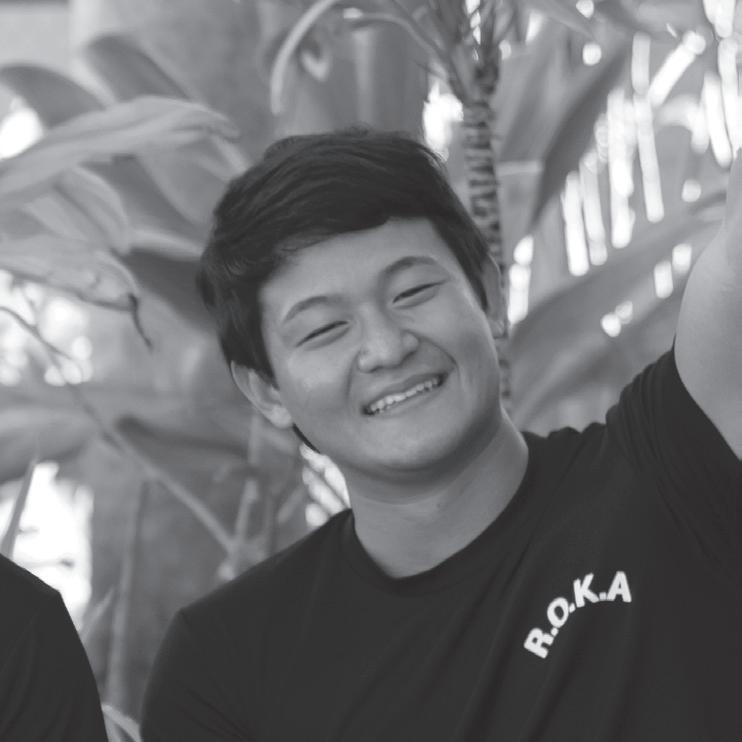

true. genuine. raw.



















 Appleton, who co-founded the Liberian Surfing Association, walks along the beach. Graphics by Akira Nagahama. Pictures provided by Appleton.
Appleton, who co-founded the Liberian Surfing Association, walks along the beach. Graphics by Akira Nagahama. Pictures provided by Appleton.








 Sisters Celia and Elaine, who pose for the camera, appreciate their natural hair.
Photos by Kristen Staker. Graphics by Yichi Lu.
Sisters Celia and Elaine, who pose for the camera, appreciate their natural hair.
Photos by Kristen Staker. Graphics by Yichi Lu.













 Photos illustrate Eden Leauanae moving forward from her injuries.
Photos illustrate Eden Leauanae moving forward from her injuries.
 BY VIVIANA CHUAH
BY VIVIANA CHUAH









 Tahiata playing the Tahitian ukulele.
Tahiata playing the Tahitian ukulele.



 BY SEIKA FUJITANI
BY SEIKA FUJITANI


 Shown left to right, Jake Woojin Han, Herman Kim, and Buhyum Jeong were all in the Korean military.
Photos by Kristen Staker Graphics by: Marlee Palmer, Sugrmaa Bataa (Kendra).
Shown left to right, Jake Woojin Han, Herman Kim, and Buhyum Jeong were all in the Korean military.
Photos by Kristen Staker Graphics by: Marlee Palmer, Sugrmaa Bataa (Kendra).








 Taylor Collet comforting Brenton Collet.
Photos by Marwin Jay Villegas. Graphics by Sugarmaa Bataa (Kendra).
Taylor Collet comforting Brenton Collet.
Photos by Marwin Jay Villegas. Graphics by Sugarmaa Bataa (Kendra).





 BY NICHOLE WHITELEY
BY NICHOLE WHITELEY







 Randy and Karen Biador plant taro in memory of their father.
Randy and Karen Biador plant taro in memory of their father.








 BY ABIGAIL HARPER
BY ABIGAIL HARPER




 Portraits of Laureano and Laureano with Jessop. Photos provided by Lawerence Laureano. Graphics by: Marlee Palmer, Sugrmaa Bataa (Kendra).
Portraits of Laureano and Laureano with Jessop. Photos provided by Lawerence Laureano. Graphics by: Marlee Palmer, Sugrmaa Bataa (Kendra).

 BY JIEUN SHIN
BY JIEUN SHIN







 Left: Portrait of dance instructor Nina Foster. Right: Nina Foster doing acrobatic skills with her son and other students.
Photos by Marwin Jay Villegas. Graphic by Marlee Palmer and Sugarmaa Bataa (Kendra)
Left: Portrait of dance instructor Nina Foster. Right: Nina Foster doing acrobatic skills with her son and other students.
Photos by Marwin Jay Villegas. Graphic by Marlee Palmer and Sugarmaa Bataa (Kendra)



 Photos by Kristen Staker. Graphics by Yichi Lu. Collage of Delphia Lloyd.
Photos by Kristen Staker. Graphics by Yichi Lu. Collage of Delphia Lloyd.


 BY LEXI LANGLEY
Portrait of John Lidang.
Photos by Kristen Staker.
Graphics by: Marlee Palmer, Sugrmaa Bataa (Kendra)
BY LEXI LANGLEY
Portrait of John Lidang.
Photos by Kristen Staker.
Graphics by: Marlee Palmer, Sugrmaa Bataa (Kendra)

 Lidang outside of the Laie McDonalds, holding the hamburger in a to go bag.
Photo by: Kristen Staker.
Lidang outside of the Laie McDonalds, holding the hamburger in a to go bag.
Photo by: Kristen Staker.



 Lidang inside of the Laie McDonald’s cutting a hamburger into fours. In honor of his families traditon to do so.
Lidang inside of the Laie McDonald’s cutting a hamburger into fours. In honor of his families traditon to do so.











